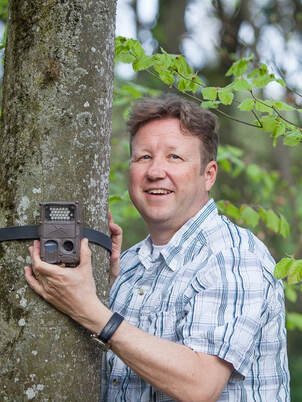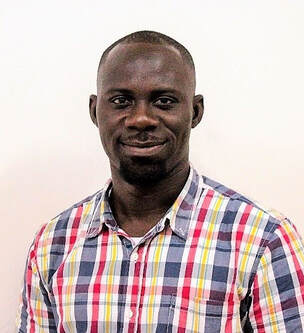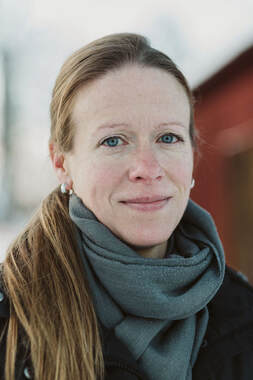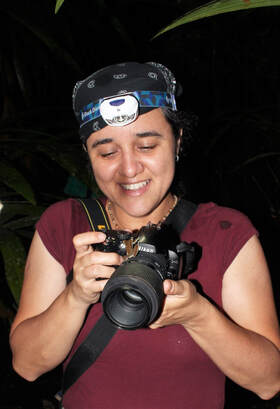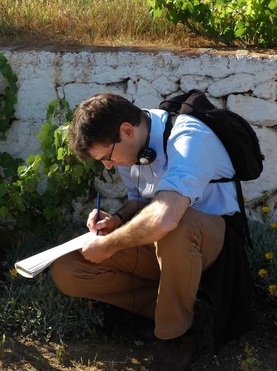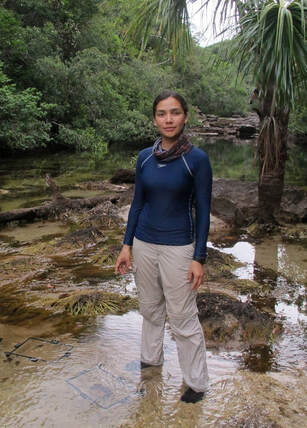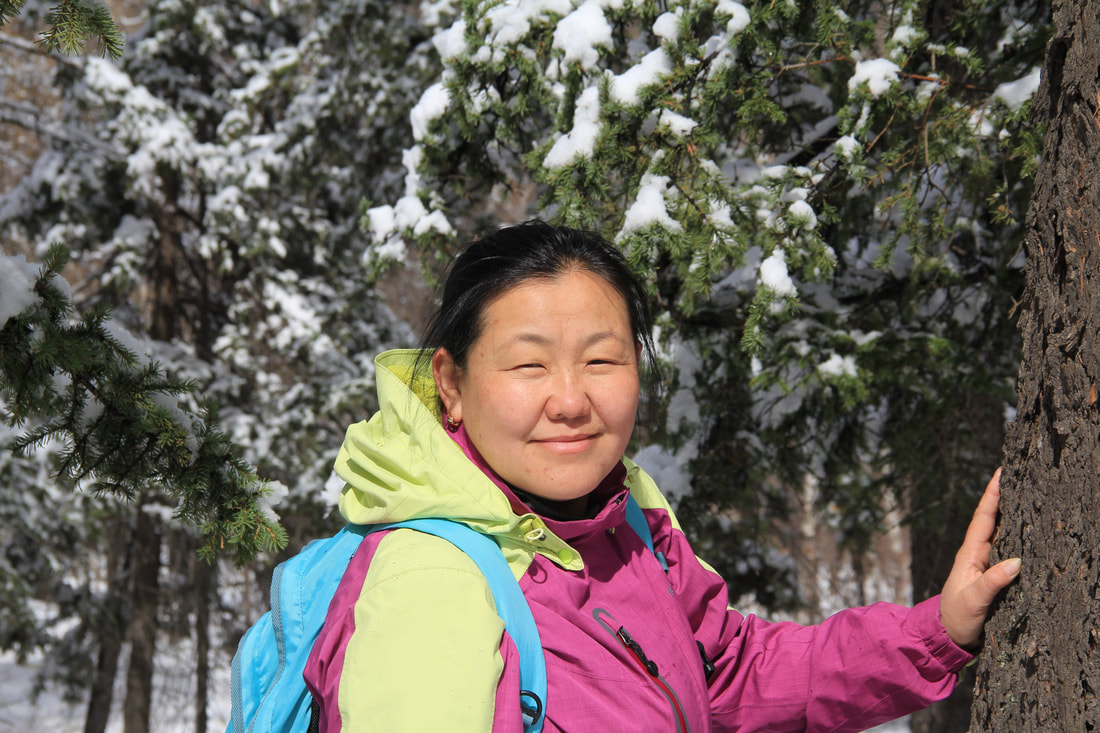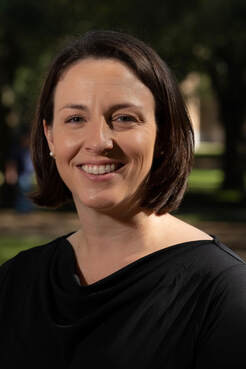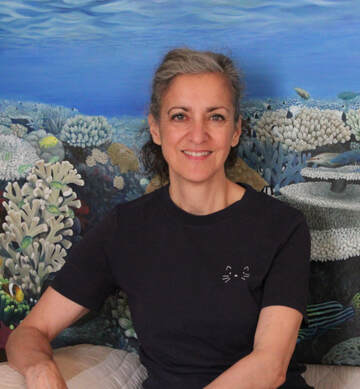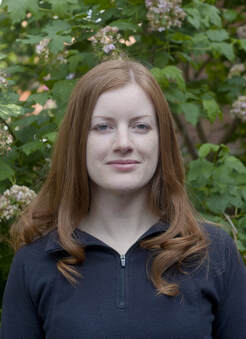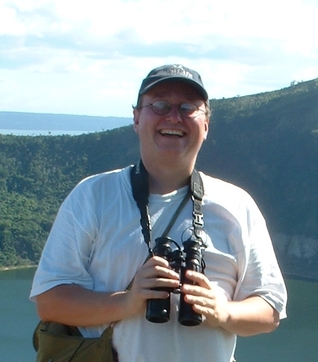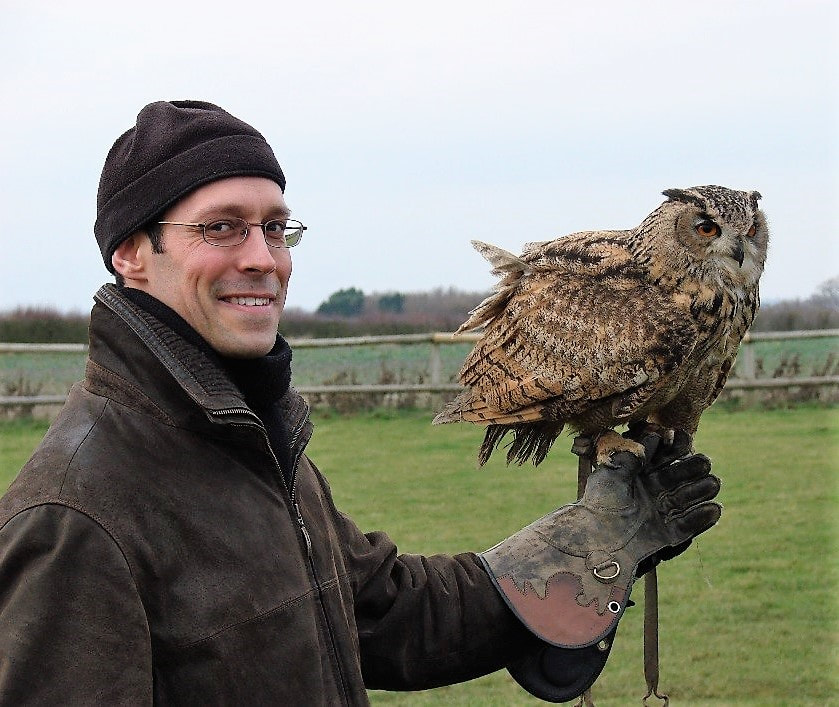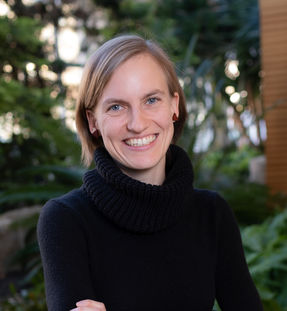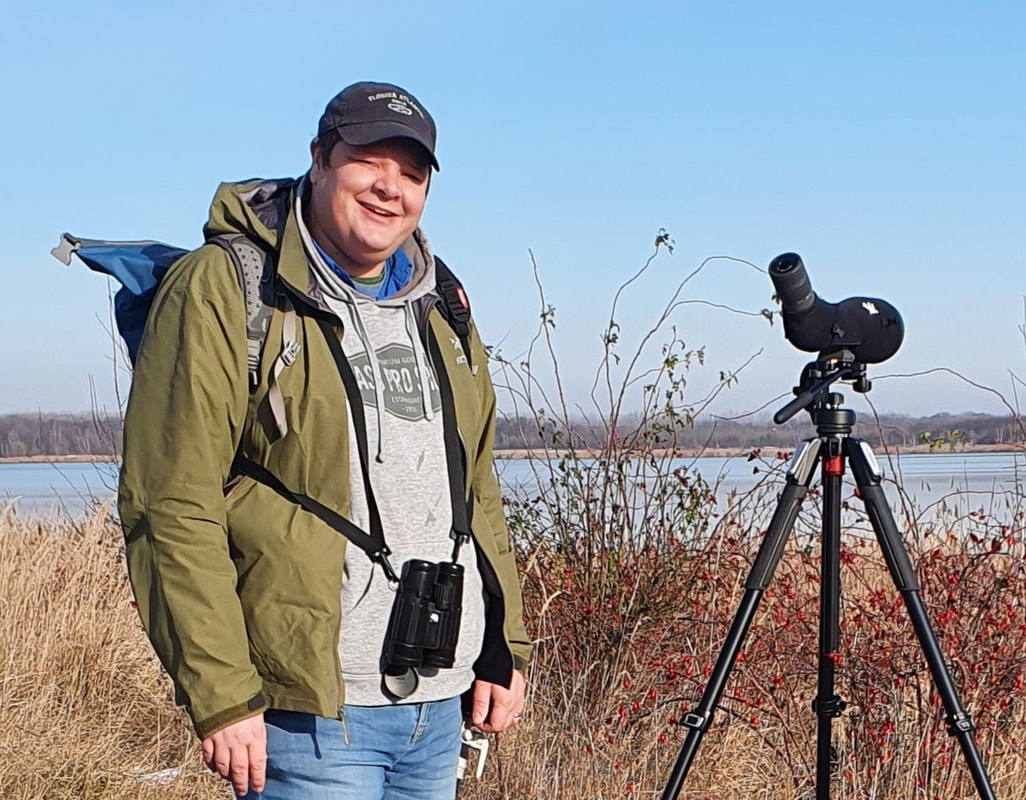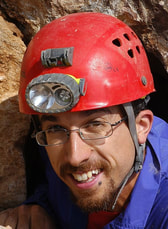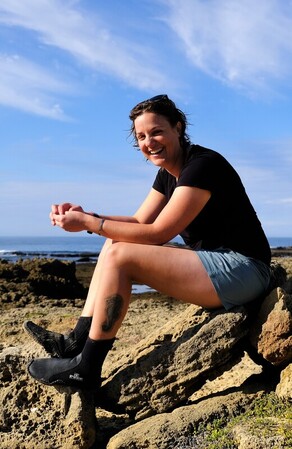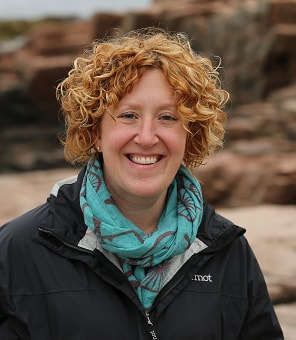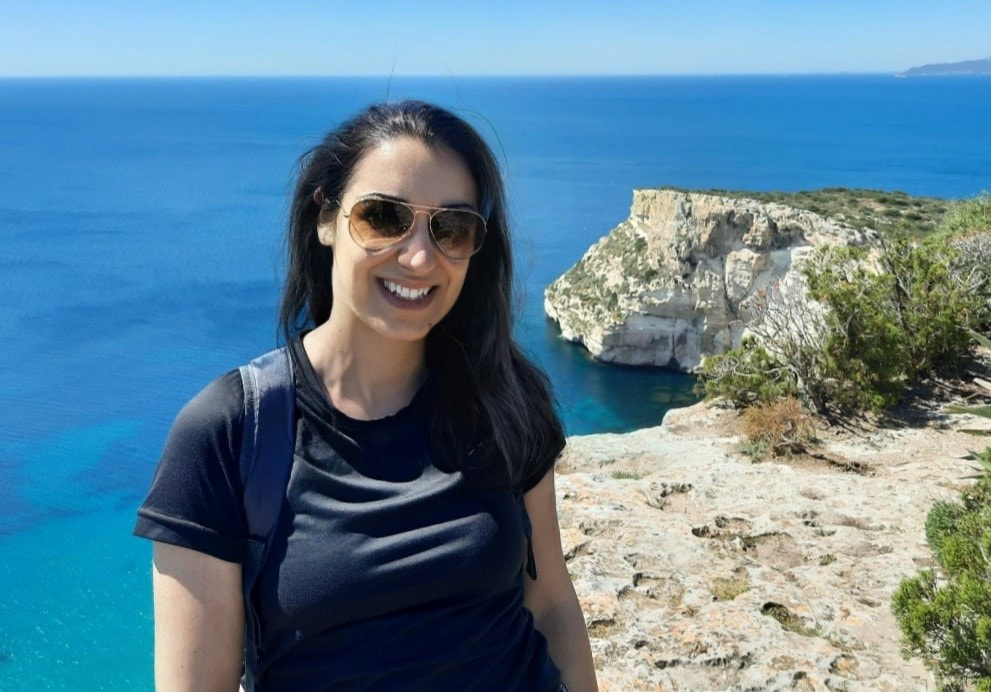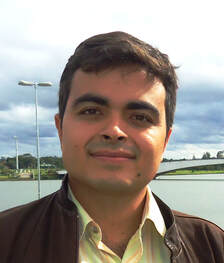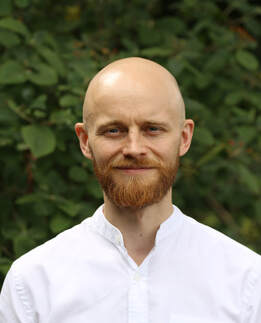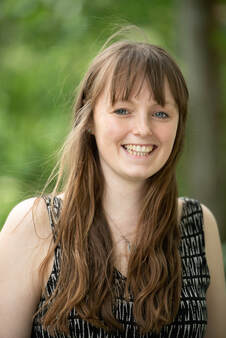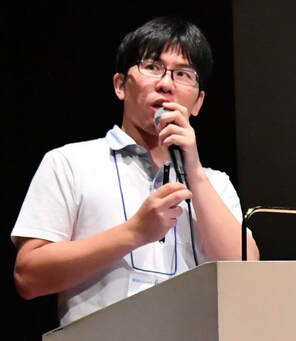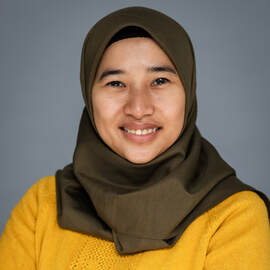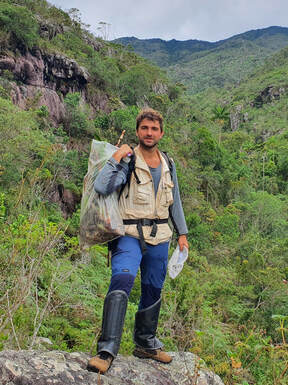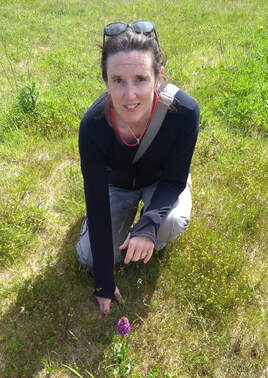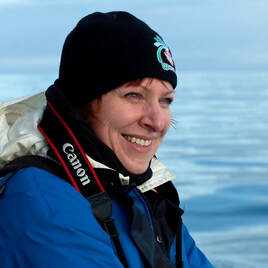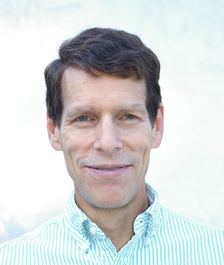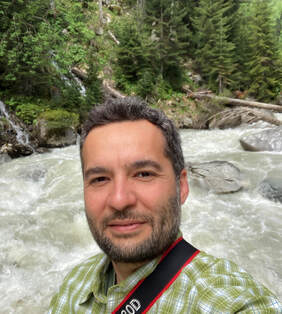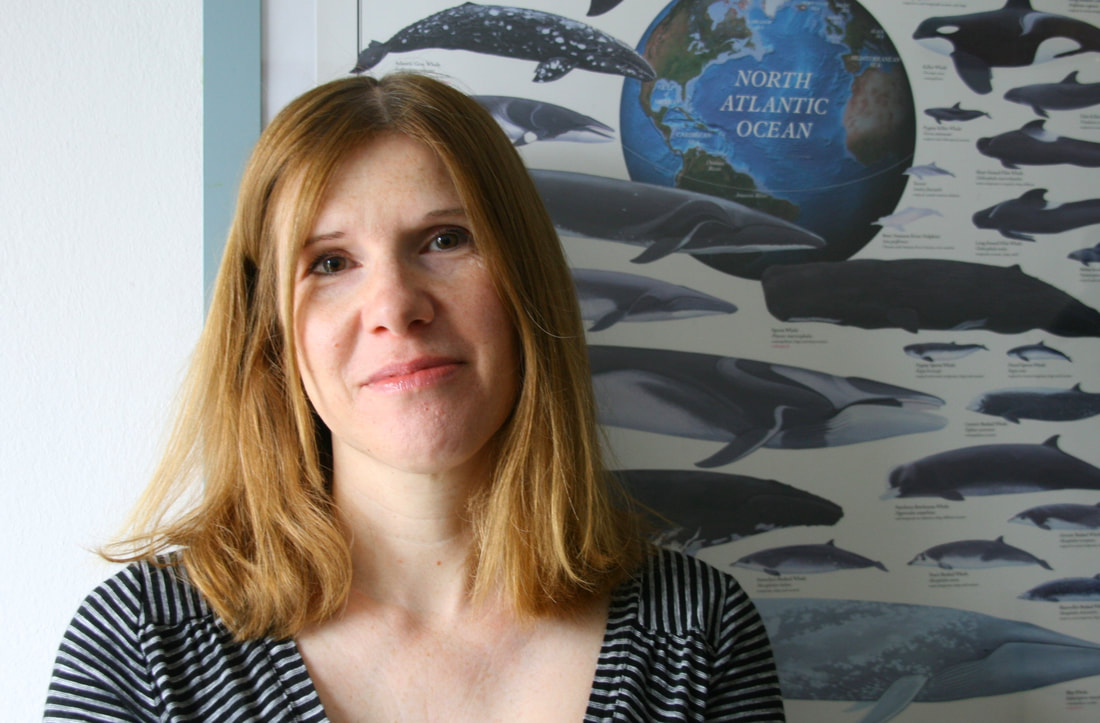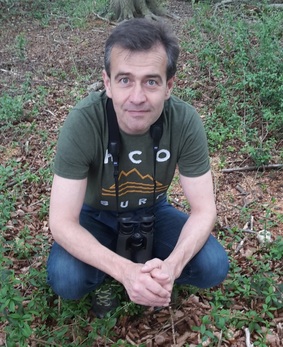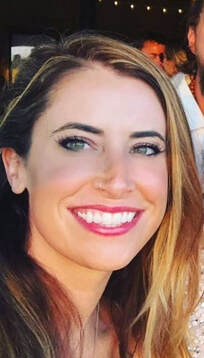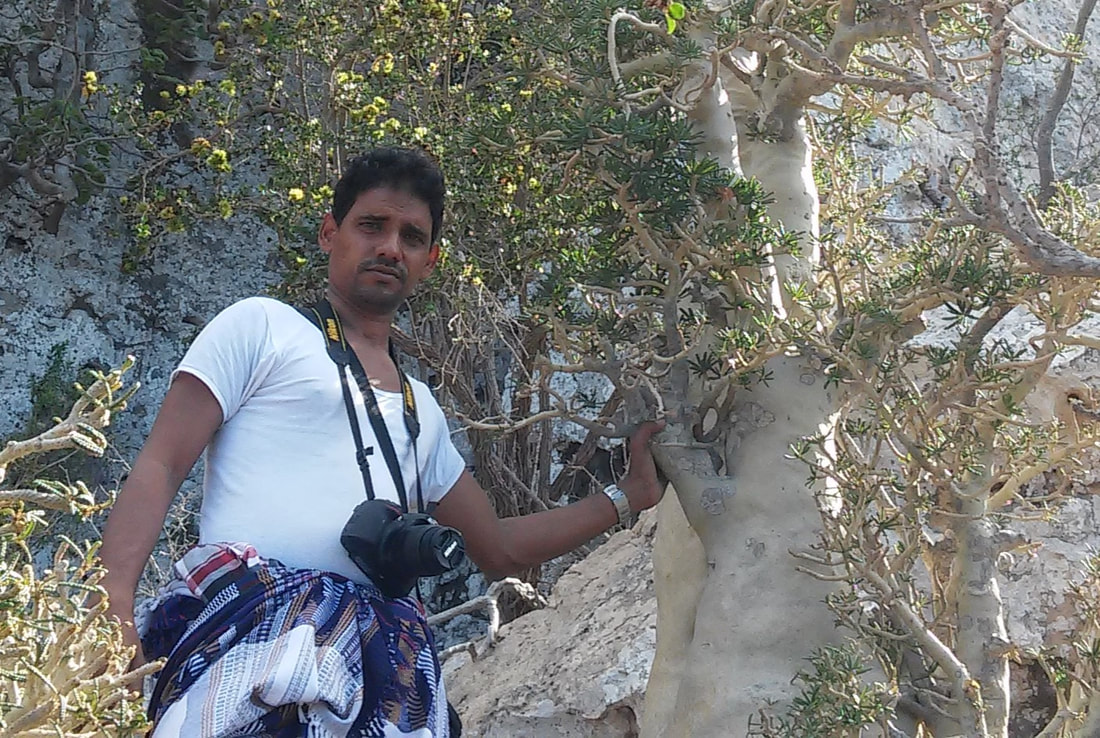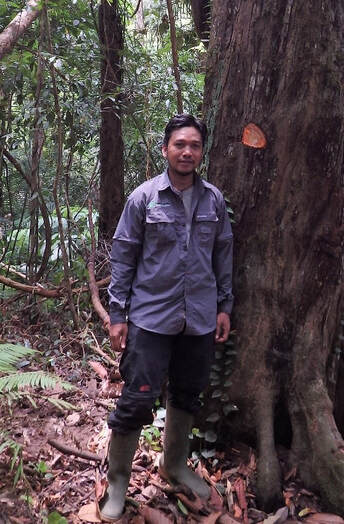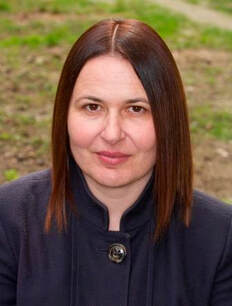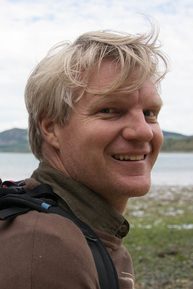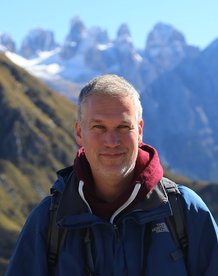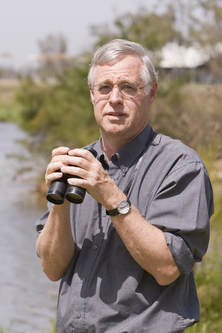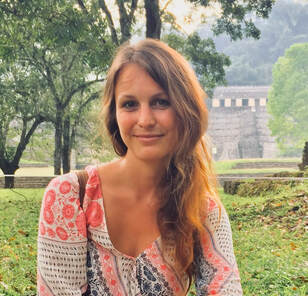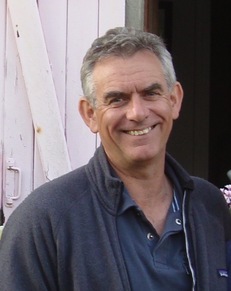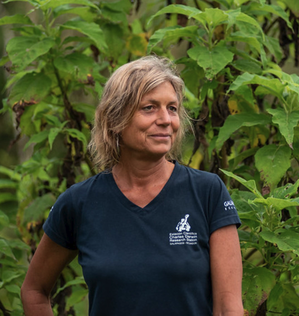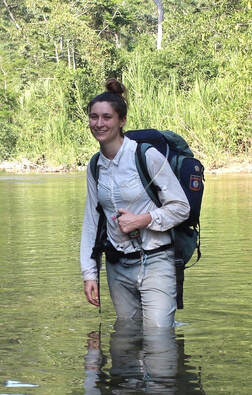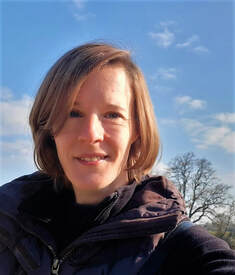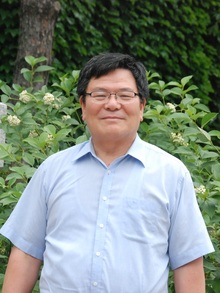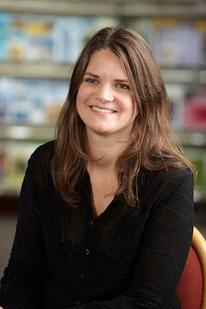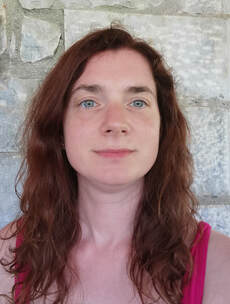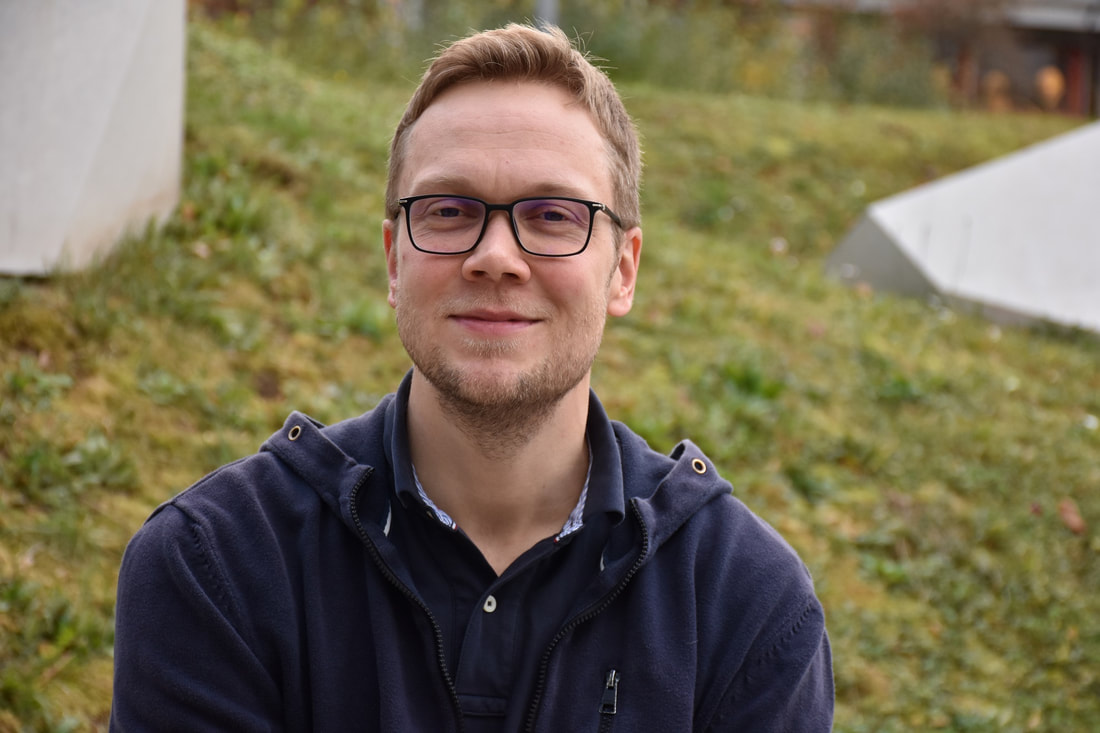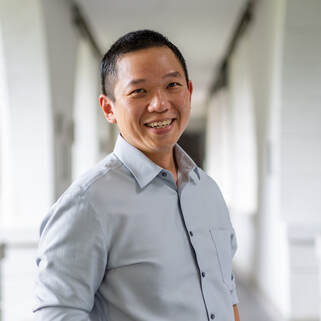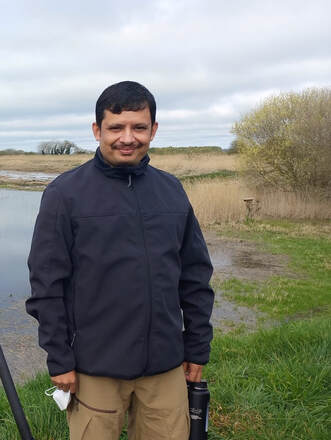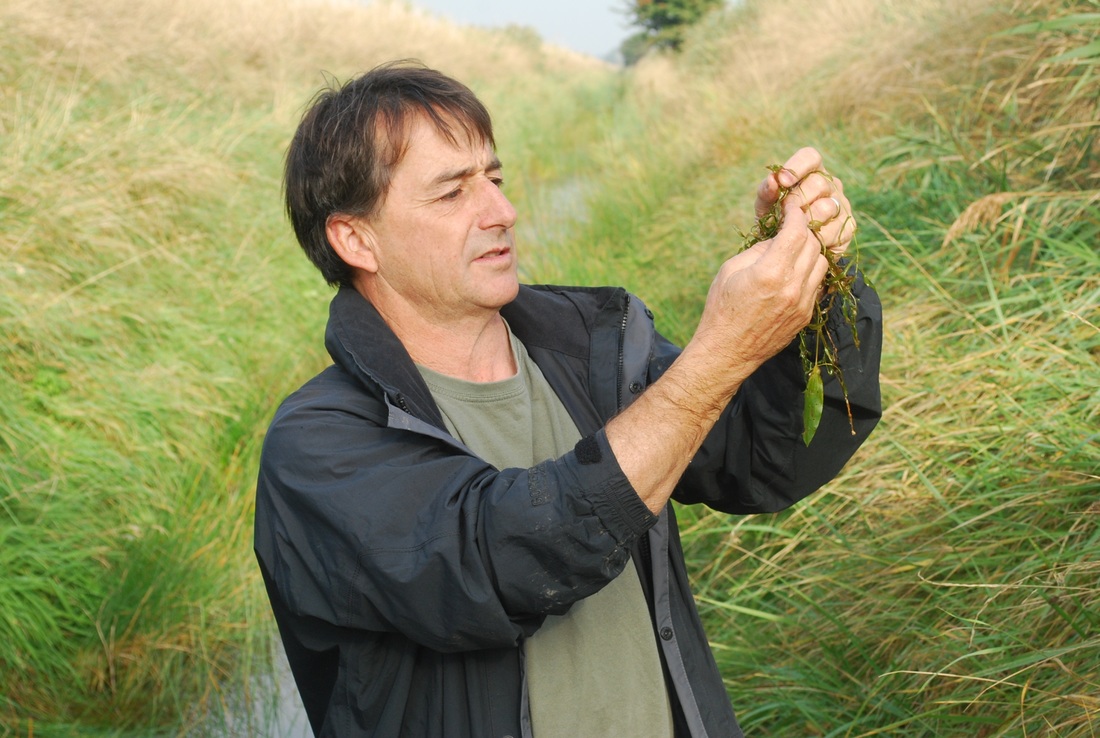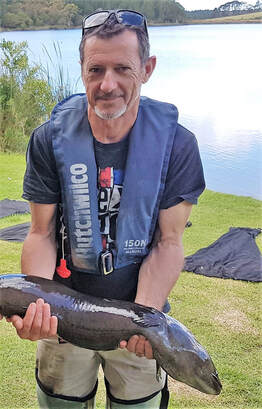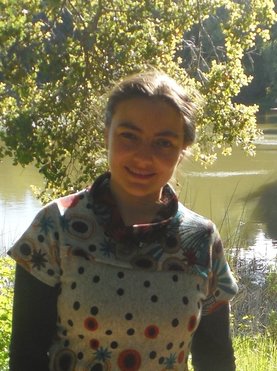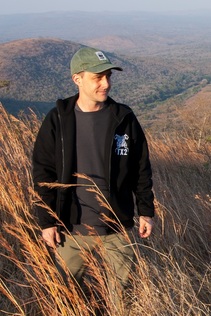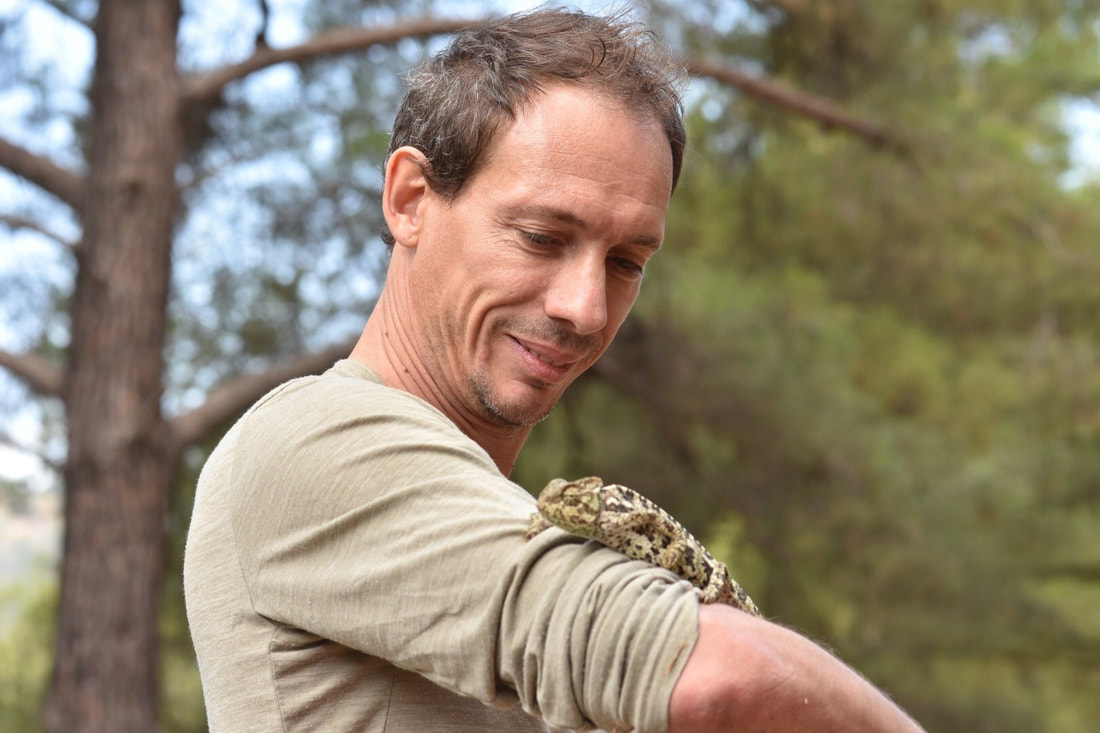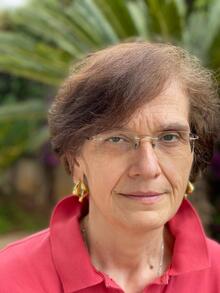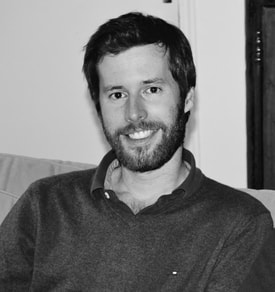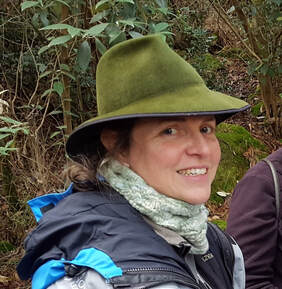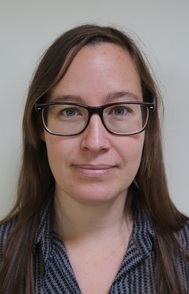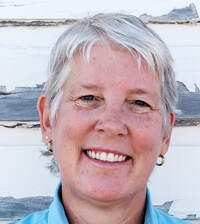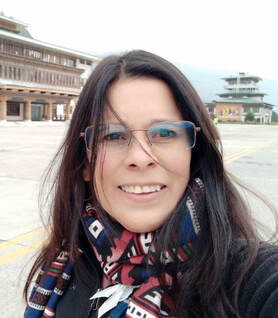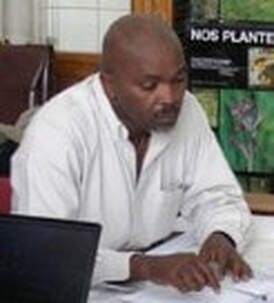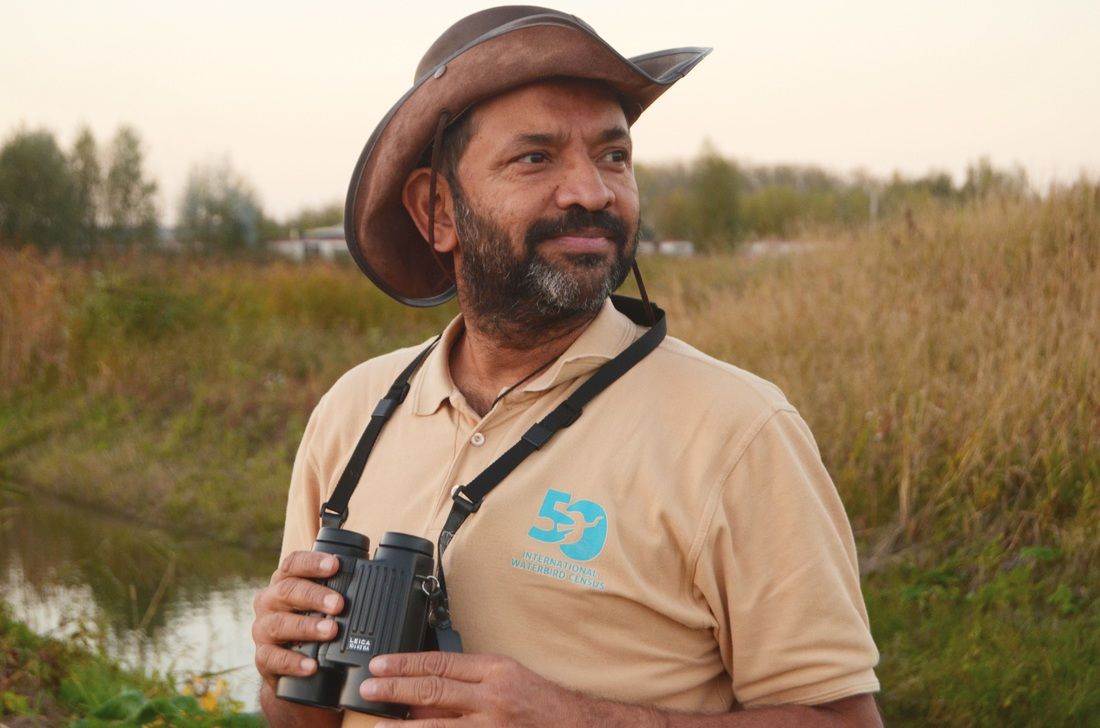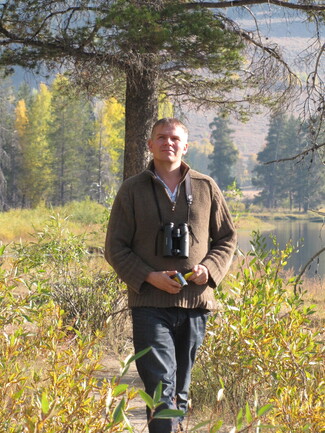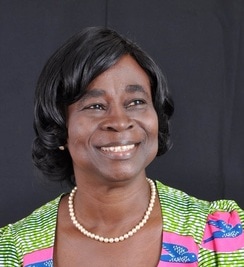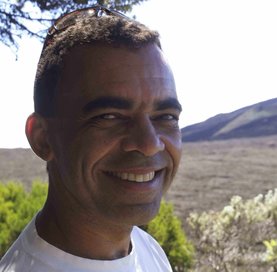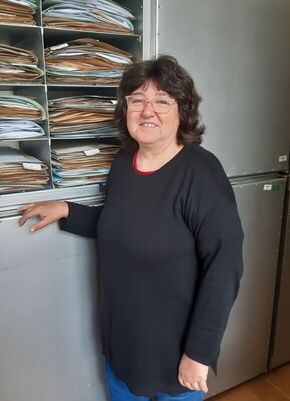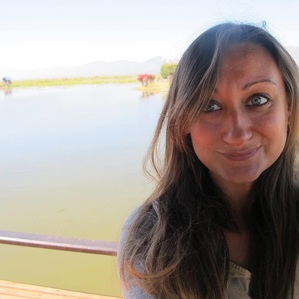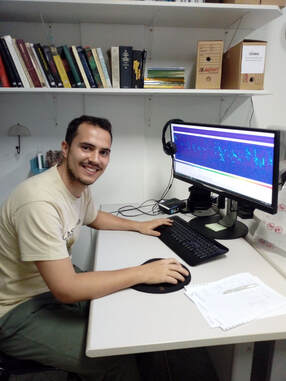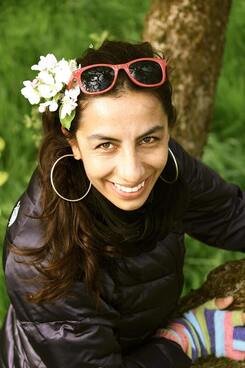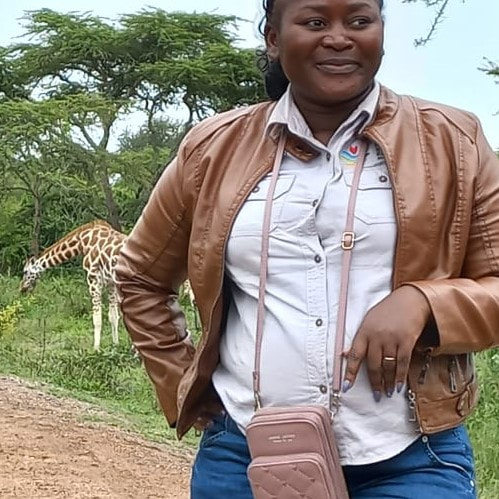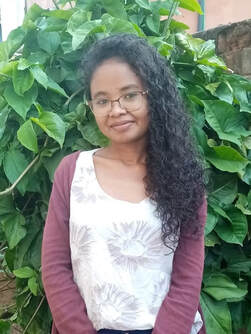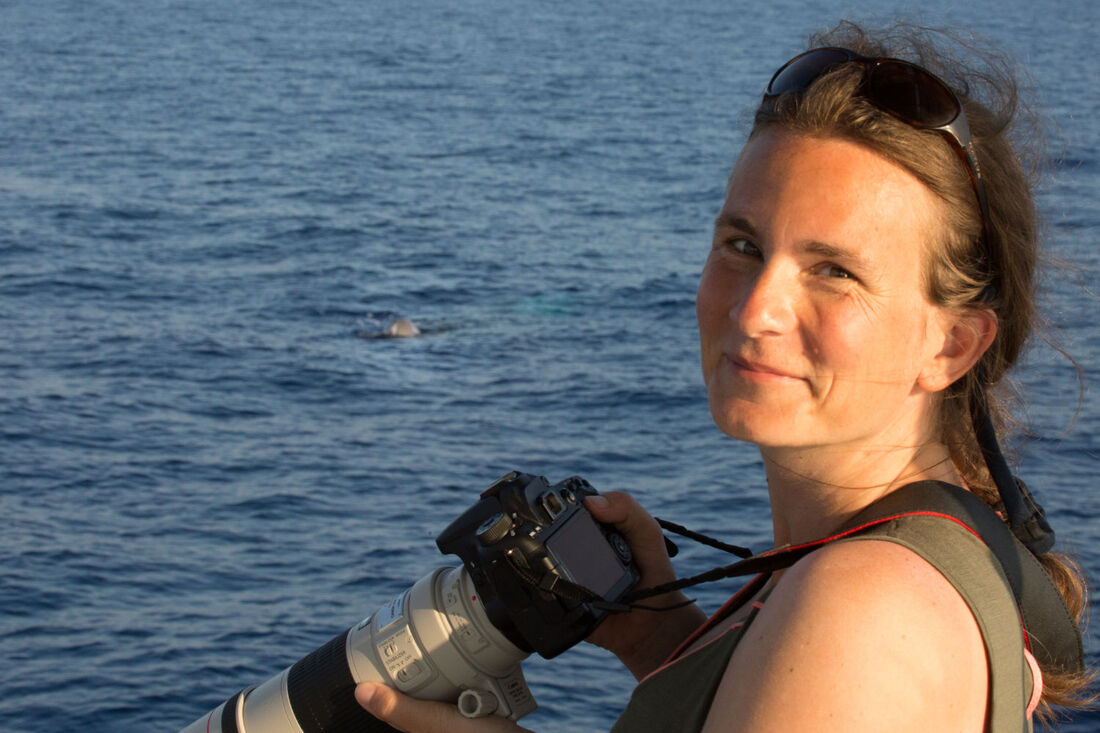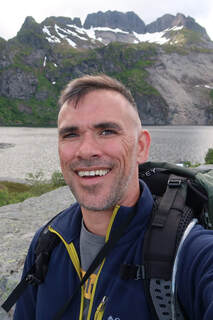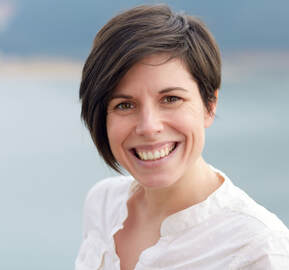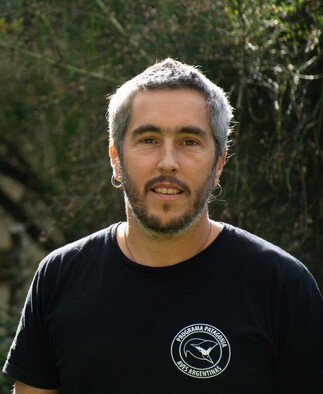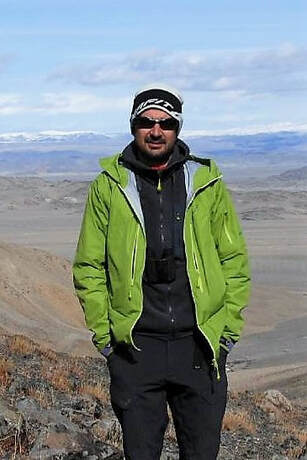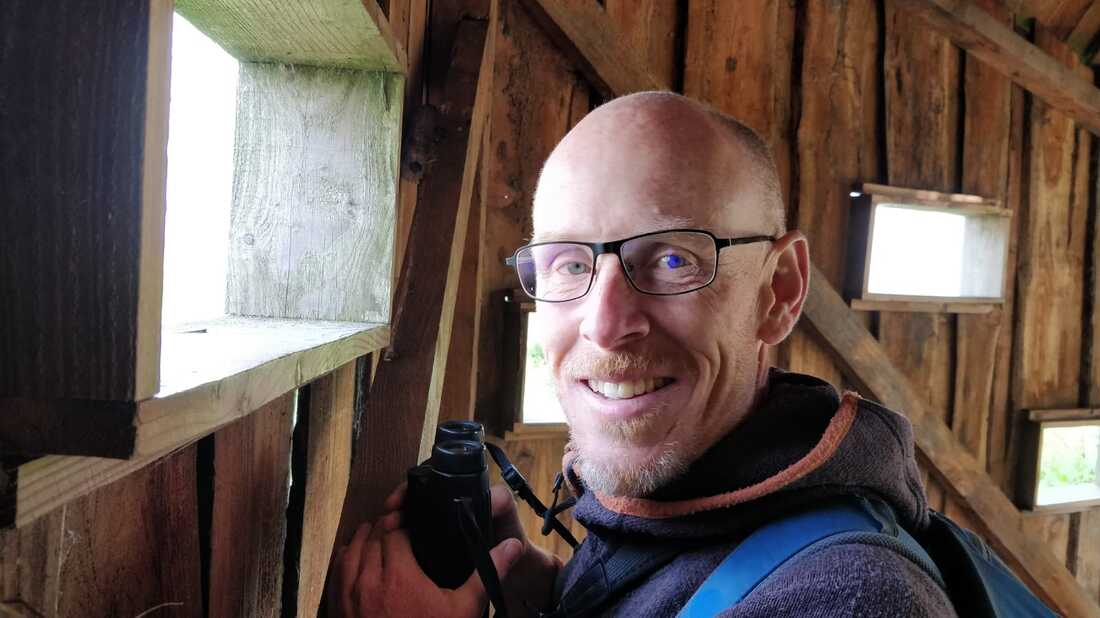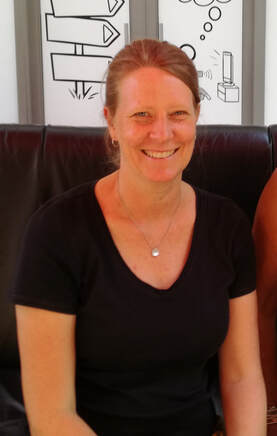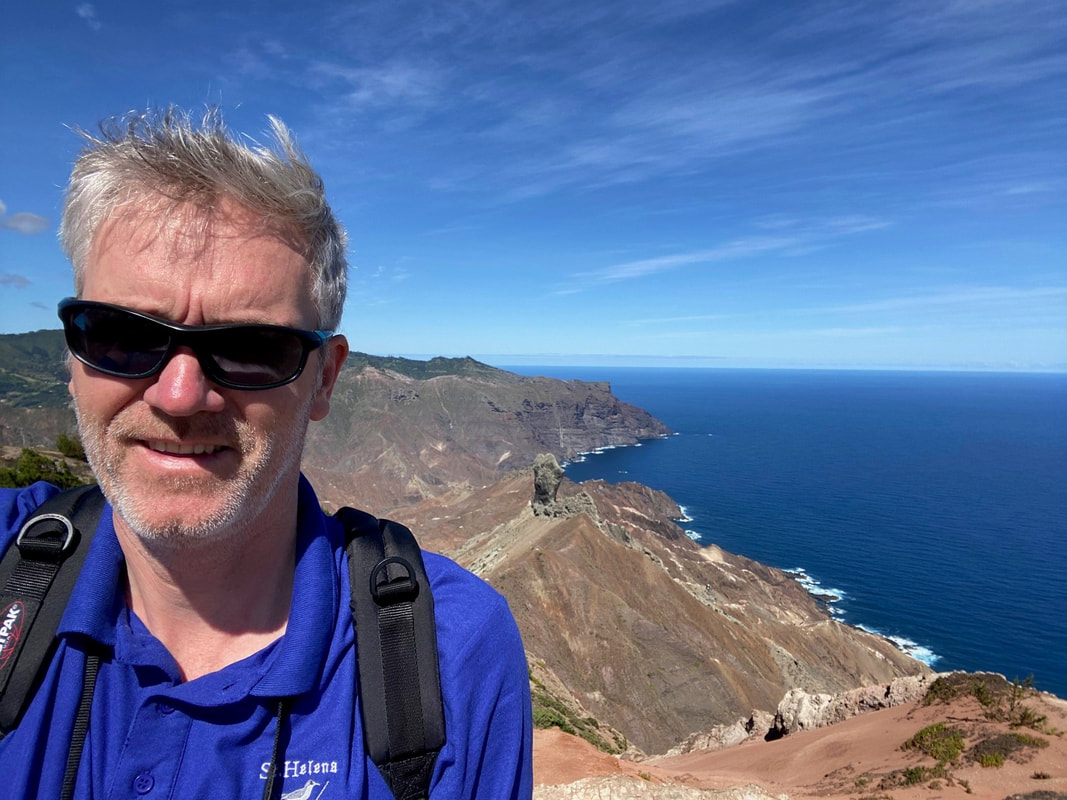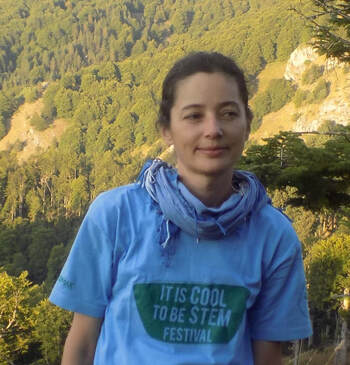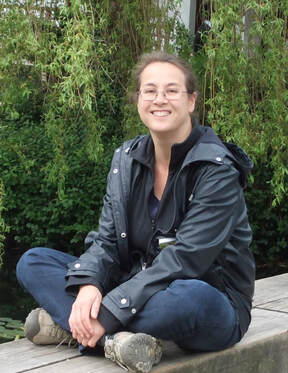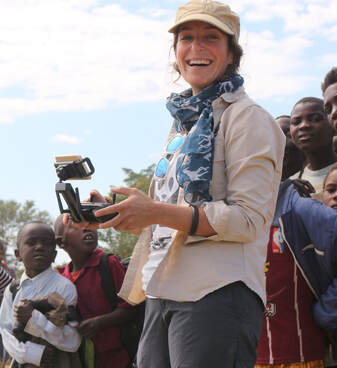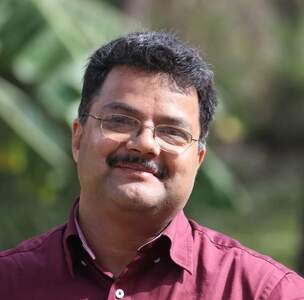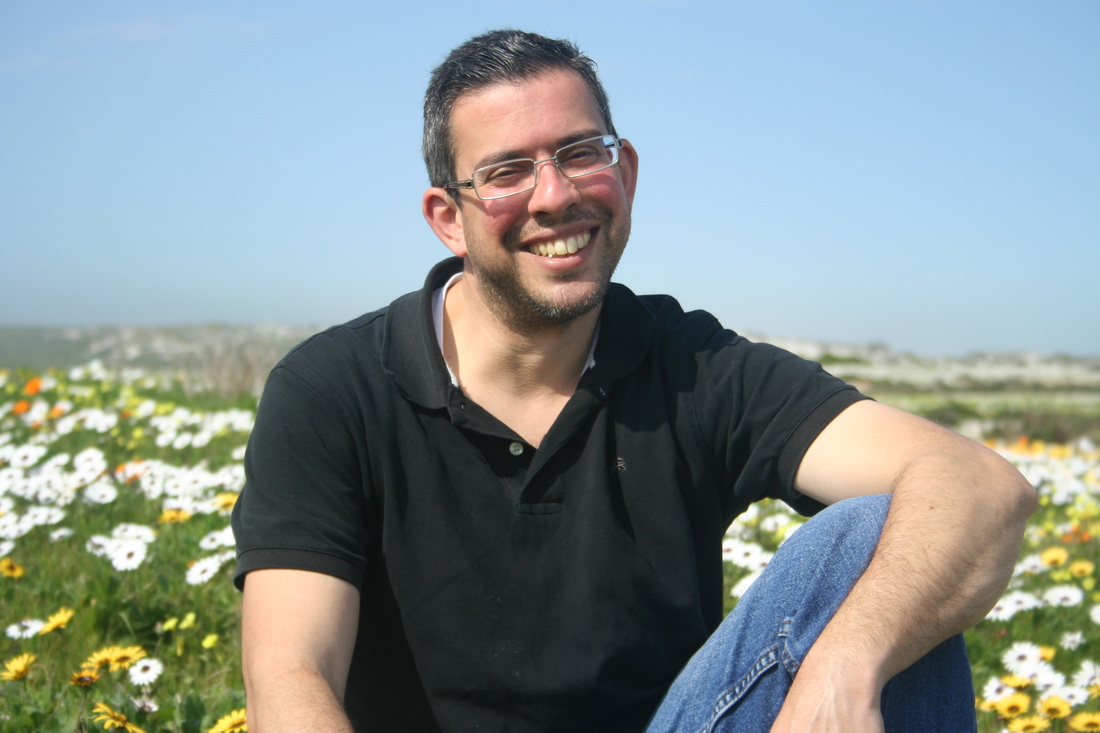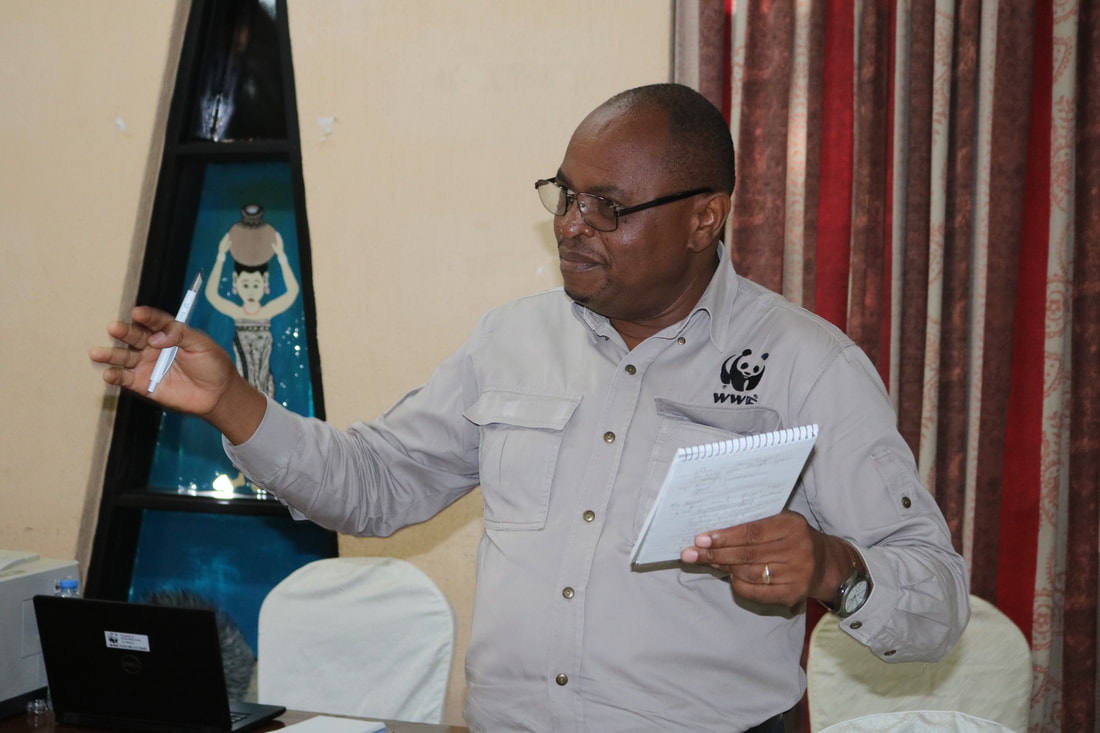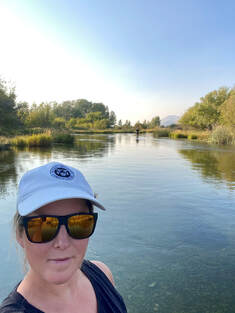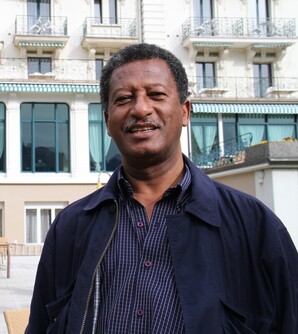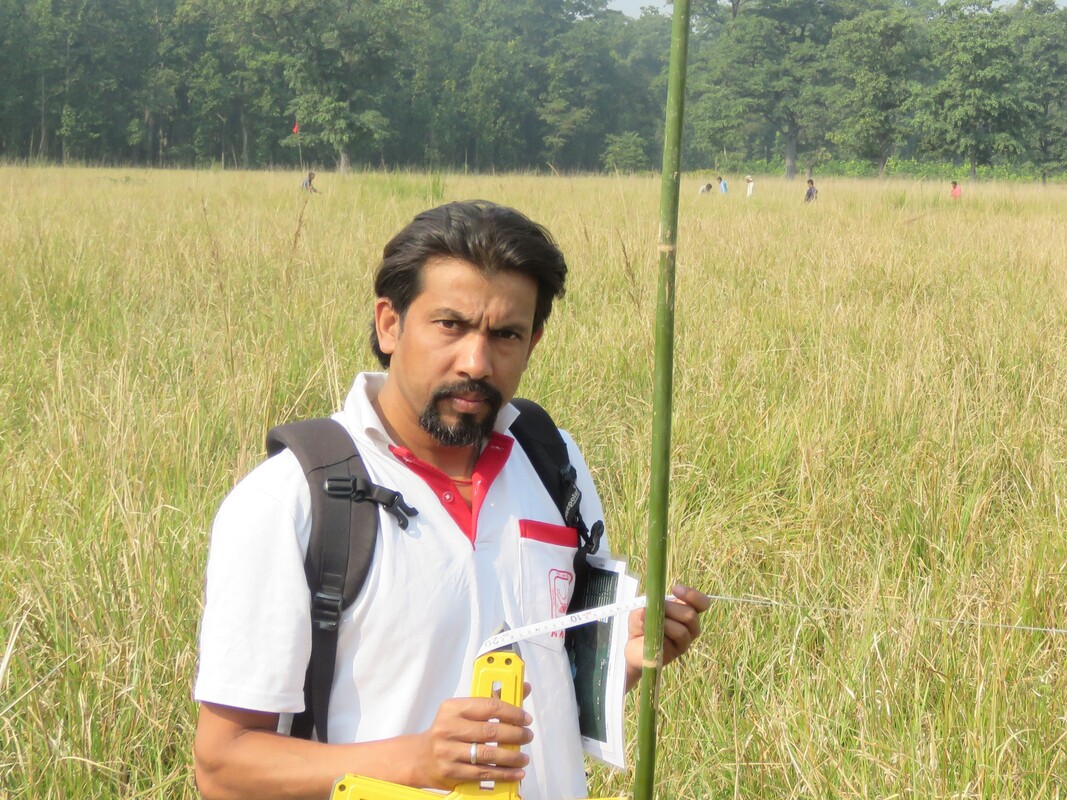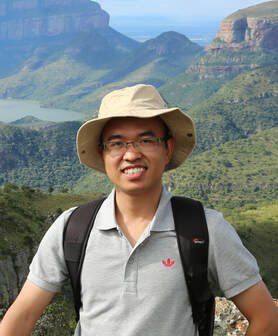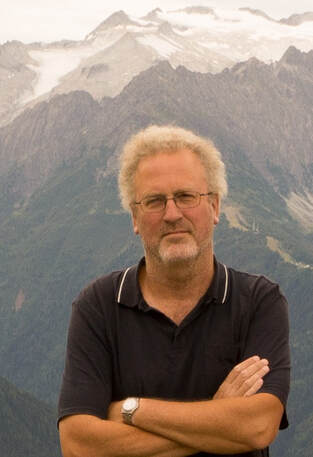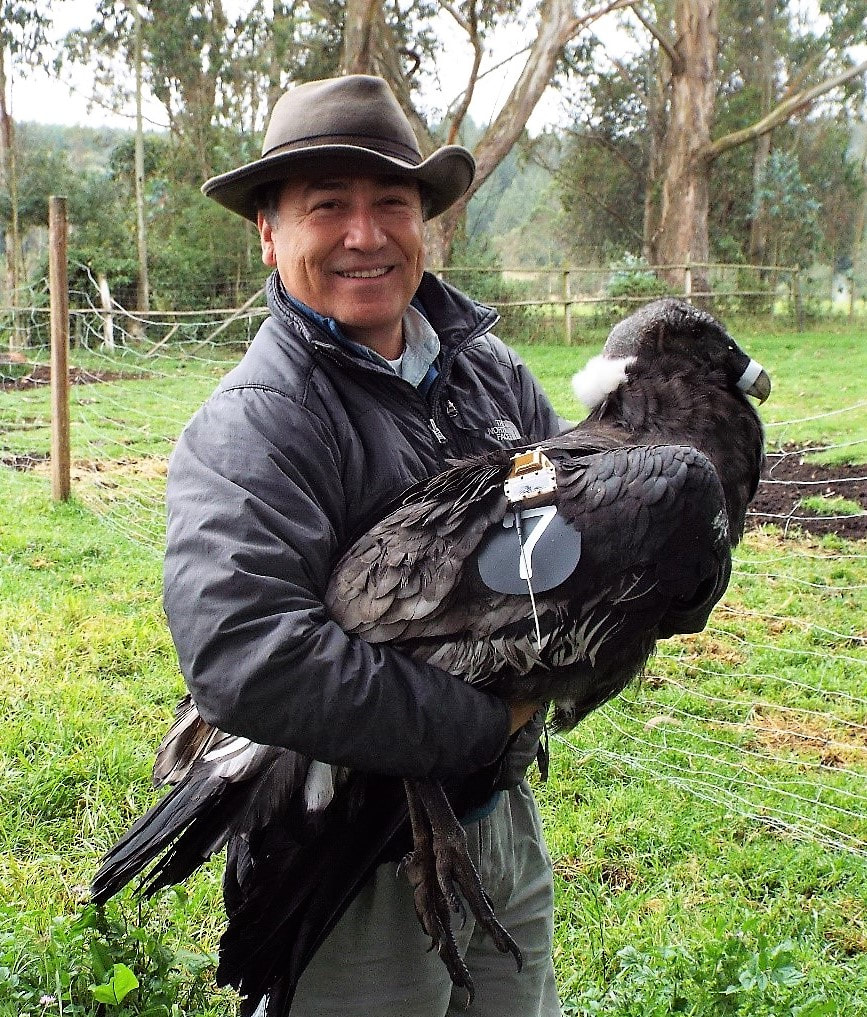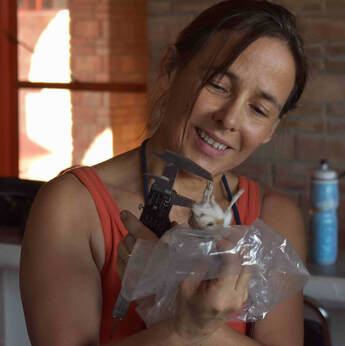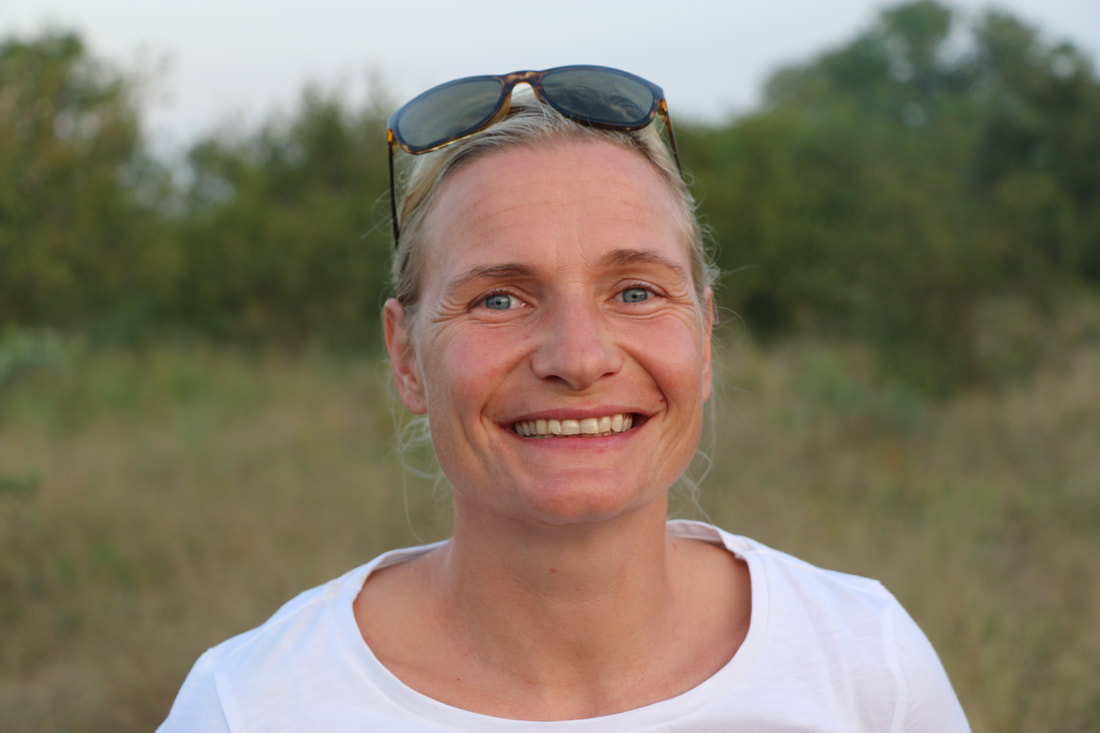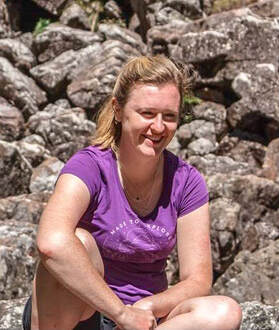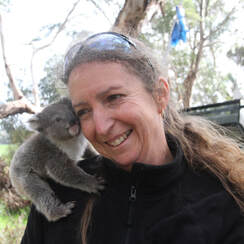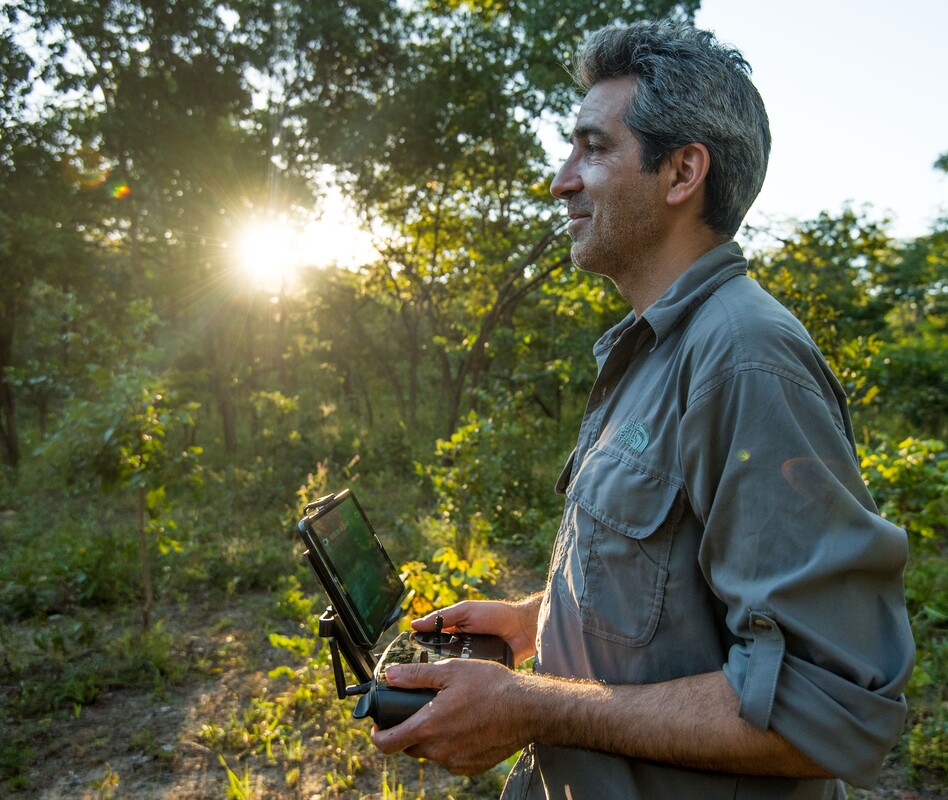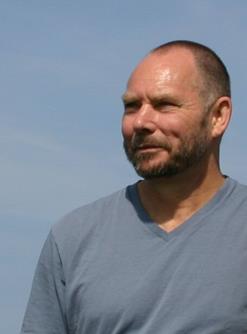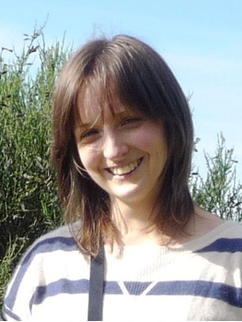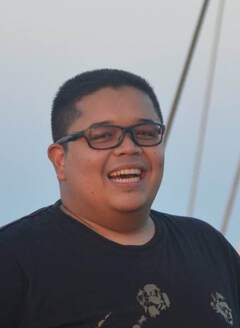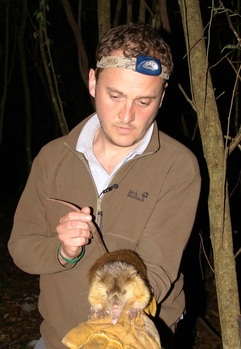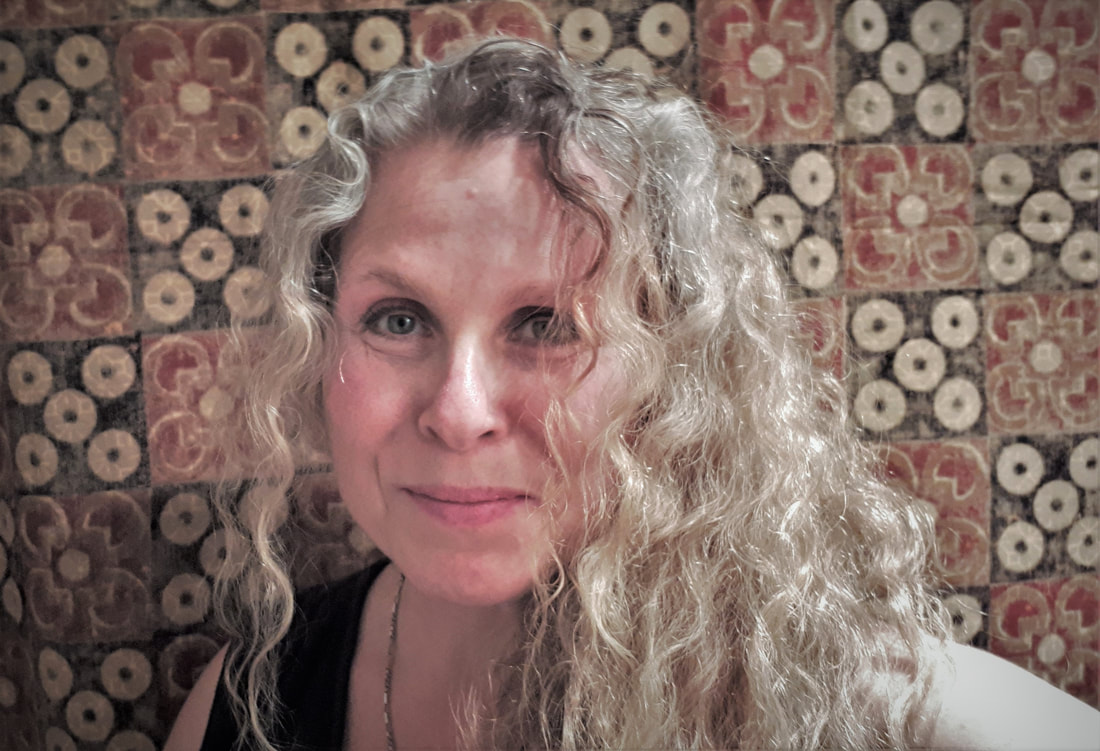Below you will find a list of current and former group members. We are a diverse team, with expertise across biomes, taxa, monitoring methods and data management systems, based in different types of institutions in 48 countries around the world.
We are now starting to operate in sub-groups to tackle key monitoring issues and the development and testing of new and evolving guidelines and tools. Sub-groups include acoustic monitoring, cameras & camera trapping, eDNA, satellite-based remote sensing, ranger-based monitoring, citizen science, data management & visualization, and indicators & metrics.
We are now starting to operate in sub-groups to tackle key monitoring issues and the development and testing of new and evolving guidelines and tools. Sub-groups include acoustic monitoring, cameras & camera trapping, eDNA, satellite-based remote sensing, ranger-based monitoring, citizen science, data management & visualization, and indicators & metrics.
|
Chair
PJ Stephenson Members
Gabby Ahmadia Kofi Amponsah-Mensah Carrie Andrew Ariadne Angulo Alessandro Badalotti Zoltán Barina Munkhchuluun Basan Angélica María Batista- Morales Lydia Beaudrot Monica Biondo Paulo A.V. Borges Katherine Boughey Thomas Brooks Ian Burfield Zuzana Buřivalová Corey Callaghan Pedro Cardoso Musa Cheruiyot Louw Claassens Emily Coffey Donatella Cogoni Danilo do Carmo Vieira Correa Anthony Dancer Katharine Davies Kristy Deiner Hideyuki Doi Estradivari Eduardo Fernandez Úna FitzPatrick Heidrun Frisch-Nwakanma Gary Geller Arash Ghoddousi Anita Gilles Molly Grace Rachel Graham Florencia Grattarola Richard Gregory Madison Hall Salem Hamdiah Arief Hamidi Daniela Hamidović Jennifer Hatlauf Nicolas Heard Richard Hearn Axel Hochkirch Marc Hockings Anja Hutschenreiter Jonathan Hutton Heinke Jäger Lydia Katsis Rosalind Kennerley Yong-Shik Kim Naomi Kingston Katy Klymus Lian Pin Koh Katerina Koutsovoulou Henrik Krehenwinkel Dipankar Lahkar Richard Lansdown Nicholas Ling María Cecilia Londoño Murcia Barney Long Arnaud Lyet Anna Maria Mannino Quentin Mauvisseau Sapphire McMullan-Fisher Louise McRae Jessica Meeuwig Irina Montenegro Paredes Inès Moreno Caroline Moussy Leonard K. Mubalama Divya Mudappa Taej Mundkur Stuart Newson Yaa Ntiamoa-Baidu David Obura Beáta Papp Stesha Pasachnik Cristian Pérez-Granados Andrea Polanco F. Sandra Ponde Imbuwa Vânia Proença Alejandro Quesada Murillo Anna Berthe Ralaiveloarisoa Julie Hanta Razafimanahaka Denise Risch Andrew Rodrigues Naiara Rodriguez Ezpeleta Ignacio “Kini” Roesler Francesco Rovero Marcus Rowcliffe Lizanne Roxburgh David Roy Katerina Rusevska Jaceyln See Linda See Aurélie Shapiro Yash Pal Sharma John Simaika Noah Sitati Carrie Stengel Taye Teferi Shyam Kumar Thapa Tieyao Tu Chris van Swaay Hernan Vargas Ella Vázquez-Domínguez Sophie von der Heyden Matt Walpole Katie Watson Katrina West Desley Whisson Serge Wich David Wilkie Vicky Wilkins Nara Wisesa Wiwardhana Jun Yang Richard Young Pamela Zevit |
Conservation & Sustainability Consultant and University of Lausanne (Lausanne, Switzerland) (names, affiliations and locations as of 4 April 2024)
WWF-US Oceans Conservation (Washington DC, USA) Centre for Biodiversity Conservation Research, University of Ghana (Accra, Ghana) Michigan Technological University (Houghton, USA) IUCN SSC Amphibian Specialist Group (Toronto, Canada) Fondation Segré (Geneva, Switzerland) Hungarian Natural History Museum (Budapest, Hungary) WWF-Mongolia (Ulaanbaatar, Mongolia) Instituto Alexander von Humboldt (Bogotá, Colombia) Rice University (Houston, USA) Fondation Franz Weber (Bern, Switzerland) University of Azores (Terceira, Portugal) Bat Conservation Trust (London, UK) IUCN (Gland, Switzerland) BirdLife International (Cambridge, UK) University of Wisconsin-Madison (Madison, USA) University of Florida (Florida, USA) University of Helsinki (Helsinki, Finland) WWF (Nairobi, Kenya) WorldFish (Comoro, Timor-Leste) & Rhodes University (South Africa) Atlanta Botanical Garden (Atlanta, USA) University of Cagliari (Cagliari, Italy) Chico Mendes Institute for Biodiversity Conservation – ICMBio (Brasilia, Brazil) Zoological Society of London (London, UK) Botanic Gardens Conservation International (London, UK) ETH Zürich (Zürich, Switzerland) University of Hyogo (Kobe, Japan) Leibniz Center for Tropical Marine Research (Bremen, Germany) Rio de Janeiro Botanic Garden Research Institute (Rio de Janeiro, Brazil) National Biodiversity Data Centre (Waterford, Ireland) UNEP/Convention on Migratory Species Secretariat (Bonn, Germany) Group on Earth Observations Secretariat and NASA Jet Propulsion Laboratory (Pasadena, CA, USA) Humboldt-University of Berlin (Berlin, Germany) University of Veterinary Medicine Hannover Foundation (Büsum, Germany) IUCN SSC/RLC Species Conservation Success Task Force (Oxford, UK) MarAlliance (Panama City, Panama) Czech University of Life Sciences (Prague, Czech Republic) Royal Society for the Protection of Birds (Cambridge & London, UK) NOAA - National Oceanic & Atmospheric Administration (Seattle, USA) Socotra Society for the Conservation of Endangered Flora (Socotra Island, Yemen) Fauna & Flora International Indonesia Programme (Bogor, Indonesia) Ministry of Economy and Sustainable Development (Zagreb, Croatia) University of Natural Resources and Life Sciences (Vienna, Austria) The Mohamed bin Zayed Species Conservation Fund (Abu Dhabi, United Arab Emirates) Wildfowl and Wetlands Trust (Slimbridge, UK) Luxembourg National Musum of Natural History (Luxembourg City, Luxembourg) University of Queensland (Brisbane, Australia) National Autonomous University of Mexico (Puerto Morelos, Mexico) WWF International (Gland, Switzerland) Fundación Charles Darwin/Charles Darwin Foundation (Puerto Ayora, Islas Galápagos, Ecuador) University of Southampton (London, UK) Durrell Wildlife Conservation Trust and Nature Positive (Bath, UK) Yeungnam University (Gyeongsan, Republic of Korea) Conservation International (Cambridge, UK) US Geological Survey (Columbia, Missouri, USA) National University of Singapore (Republic of Singapore) Mediterranean Agronomic Institute of Chania (Hania, Crete, Greece) Trier University (Trier, Germany) Aaranyak (Guwahati, India) IUCN SSC Freshwater Plant Specialist Group (Stroud, UK) University of Waikato (Hamilton, New Zealand) Instituto Alexander von Humboldt & GEOBON (Bogotá, Colombia) Re:wild (Washington DC, USA) WWF-US (Washington DC, USA) Università di Palermo (Palermo, Italy) Natural History Museum, University of Oslo (Oslo, Norway) Fungi4Land & Fun Fungi Ecology (Melbourne, Australia) Zoological Society of London (London, UK) University of Western Australia (Crawley, Australia) WWF-US (Valdivia, Chile) KORA (Ittigen, Switzerland) Ligue pour la Protection des Oiseaux (Rochefort, France) Higher Institute of Rural Development (Bukavu, Democratic Republic of Congo) Nature Conservation Foundation (Mysore, India) Wetlands International (Amsterdam, The Netherlands) British Trust for Ornithology (Hapton, UK) University of Ghana and Ghana Wildlife Society (Accra, Ghana) CORDIO East Africa (Mombasa, Kenya) Hungarian Museum of Natural History (Budapest, Hungary) Fort Worth Zoo (Fort Worth, Texas, USA) Universidad de Alicante (San Vicente del Raspeig, Spain) Museo de Historia Natural Marina de Colombia (Santa Marta, Colombia) Zambian Department of National Parks and Wildlife (Lusaka, Zambia) Instituto Superior Técnico, University of Lisbon (Lisbon, Portugal) Cornell Bird Project, ECOM Trading (San Ramon, Costa Rica) University of Antananarivo & Royal Botanic Gardens, Kew (Antananarivo, Madagascar) Madagasikara Voakajy (Andraisoro, Madagascar) Scottish Association for Marine Science - SAMS (Connel, Scotland, UK) Global Biodiversity Information Facility - GBIF (Copenhagen, Denmark) AZTI (Garai, Spain) Aves Argentinas & Fundación Bariloche (Rio Negro, Argentina) Department of Biology, University of Florence (Florence, Italy) ZSL Institute of Zoology (London, UK) Endangered Wildlife Trust (Johannesburg, South Africa) UK Centre for Ecology and Hydrology (Wallingfrord, UK) Ss. Cyril and Methodius University (Skopje, Macedonia) Malaysian Nature Society (Kuala Lumpur, Malaysia) International Institute for Applied Systems Analysis (Laxenburg, Austria) UN Food & Agriculture Organisation (Berlin, Germany) University of Jammu (Jammu, India) Institute for Water Education (Delft, Netherlands) & Stellenbosch University (South Africa) WWF-Tanzania (Dar es Salaam, Tanzania) Re:wild (Seattle, Washington, USA) TRAFFIC (Nairobi, Kenya) National Trust for Nature Conservation (Lalitpur, Nepal) South China Botanical Garden (Guangzhou, China) De Vlinderstichting - Dutch Butterfly Conservation (Wageningen, The Netherlands) The Peregrine Fund (Quito, Ecuador) National Autonomous University of Mexico (Mexico City, Mexico) University of Stellenbosch (Stellenbosch, South Africa) Cornwall Wildlife Trust (Truro, UK) University of Stellenbosch (Stellenbosch, South Africa) Commonwealth Scientific and Industrial Research Organisation (Tasmania, Australia) Deakin University (Boronia, Australia) Liverpool John Moores University (Liverpool, UK) Wildlife Conservation Society (Waltham, Massachusetts, USA) Independent Consultant (Cambridge, UK) UNDP Arafura & Timor Seas Ecosystem Action Programme (Jakarta, Indonesia) Tsinghua University (Beijing, China) Nature Positive Environmental Management Consultancy (Bath, UK) City of Surrey (Surrey, British Columbia, Canada) |
Member Profiles
|
© Alexander Belokurov http://imagenature.com
|
Chair: PJ Stephenson (Lausanne, Switzerland)
PJ is an independent conservation consultant based in Switzerland. He has been involved in species research and conservation for over 30 years. His monitoring-related work started in 1985-6 when he conducted mammal surveys in Malagasy rain forests. After studying tenrecs in Madagascar for his PhD, he went on to work for Scottish Natural Heritage in the Cairngorms, WWF in the Democratic Republic of Congo and Tanzania, and Conservation International in Côte d'Ivoire. He moved on to establish and manage elephant, great ape and rhino programmes for WWF's Africa & Madagascar Programme. Between 2007 and 2016 he was WWF International's Director of Conservation Strategy & Performance where he drove results-based management across the network, introducing monitoring systems that measured delivery of WWF's priority programmes and global goals for the first time in the organization's history. He was recently Senior Advisor, Monitoring, in IUCN's Science & Knowledge team in Gland and a Senior Research Fellow at ETH Zürich. As well as heading up the Species Monitoring SG, he is a member of the IUCN SSC specialist groups for Primates and Afrotheria and the IUCN World Commission on Protected Areas. Since August 2020 he has been affiliated with the Laboratory for Conservation Biology at the University of Lausanne. Kofi Amponsah-Mensah (Accra, Ghana)
Kofi is an early career ecologist and conservationist driven by the desire to leave a positive mark in the fight to help conserve what is left of nature while ensuring sustainable utilisation. He gained a PhD in Zoology from the University of Ghana working on the ecology of fruit bats and their role in zoonotic disease transmission. Currently he is a Research Fellow at the Centre for African Wetlands at the University of Ghana. He is the coordinator for the project “Improving Capacity for Protected Area Management in Ghana” which seeks to improve species monitoring capacity of protected area staff to generate relevant data for improved management. The project has introduced new protocols for camera trapping and invertebrate surveys into the monitoring programme for Shai Hills Reserve as a pilot for wider adoption across the country. Carrie Andrew (Houghton, USA)
Carrie investigates aspects of fungal, and more broadly, terrestrial ecology in light of global change (atmospheric chemistry, climate change, land-use change and pollution). She questions the natural and anthropogenic determinants of species, their assemblages and biotic associations, from the micro- to the macro- scale, especially related to future global change consequences. Carrie has worked with fungi and plants since her degrees at the University of Wisconsin - Madison (2004, BS) and Michigan Technological University (2009, PhD). Since then, she has specialised in spatiotemporal analyses of multi-source observational data (museums, citizen science, etc.), during postdoctoral affiliations with the University of Oslo (2013-2016), Swiss Federal Research Institute (2017-2018), University of Cambridge (2017-2018), SLU Swedish Species Information Center (2019-2021), and now, as a research assistant professor at Michigan Technological University (2021-). She is, thus, also a data scientist (for both observational and eDNA) who focuses on analysing the ecological impacts of global change, from past to future, of fungi and associated organisms. |
|
Ariadne Angulo (Toronto, Canada)
Ariadne completed a Master’s degree in Conservation Biology at the University of Kent and a PhD in Zoology at the University of Toronto. Her research interests include bioacoustics, conservation, ecology, evolutionary biology and systematics of amphibians. She became involved with amphibian conservation assessments as a coordinator and assessor in the Global Amphibian Assessment; she subsequently coordinated an amphibian research and conservation project in the tropical Andes, worked as Amphibian Red List Authority Coordinator overseeing the maintenance and curation of the amphibian database on the IUCN Red List of Threatened Species, and more recently acted as Director of Conservation for the International Conservation Fund of Canada. Alessandro Badalotti (Geneva, Switzerland)
Alessandro is General Manager at the Fondation Segré in Geneva. Before this role, he worked on species conservation issues for IUCN's Asia Regional Office in Bangkok and, before that, was Coordinator of SOS – Save Our Species at IUCN HQ in Gland, Switzerland. SOS is a global grant making initiative for the conservation of threatened species and their habitats created by IUCN, the World Bank and the Global Environment Facility in 2010. He joined the initiative from its inception and was responsible for the supervision of the grant portfolio and the impact monitoring system for its 109 projects protecting 250 species in 65 countries worldwide. Prior to joining IUCN, Alessandro worked for WWF both in the Mediterranean Programme Office and in the Conservation Strategy and Performance Unit of WWF International where, among other tasks, he was involved in the roll out of the WWF Programme and Project Management Standards. His main interest lies in monitoring conservation impact at the portfolio and project level as well as in building capacity of conservation practitioners on these issues. Angélica María Batista-Morales (Bogotá, Colombia)
Angélica has a graduate degree in Biological Sciences from the Universidad Nacional de Colombia (2007) and an MSc in Biological Sciences from the Universidad de Los Andes, Colombia (2017). Her research focuses on ecology, limnology, and genetics. She currently works at the Alexander von Humboldt Biological Resources Research Institute as a researcher of freshwater ecology, in the research program for the monitoring and evaluation of biodiversity. She designs monitoring protocols, programmes, and indicators for biodiversity and aquatic ecosystems. She supports the national mercury research plan in the expert committee for biota monitoring of the Minamata Convention, as well as the national ecosystem monitoring programme of Colombia. She is the Latin America coordinator for the Freshwater BON (FWBON) of GEOBON. She is interested in deepening the role of the dendritic structure of river networks on their biodiversity, the use of eDNA and macroecology to address management and connectivity. Munkhchuluun Basan (Ulaanbaatar, Mongolia)
Munkhchuluun joined WWF-Mongolia as a protected area officer in 2008. Her role was to contribute the conservation of steppe, freshwater and forest ecosystems and the core habitat and connectivity areas of key migratory species by helping establish a protected areas network, improving its management capacity, and implementing community-based natural resource management. Since 2016, she has been working as Amur Heilong ecoregion programme manager at WWF-Mongolia, where her main role is to design and monitor projects. She also focuses on the development of transboundary cooperation to ensure ecosystem integrity and the connectivity of migratory species habitats. Since 2012, she has been part of the Conservation Coaches’ Network, helping build capacity for project and programme management, designing and planning, results-based monitoring, and adaptive management tools. As a CCNET franchise co-leader, she coordinates and organizes training and experience-sharing meetings on adaptive management for protected area staff and conservation coaches. In addition, she is actively working on developing and improving methodologies for management planning (Conservation Standard) and monitoring management effectiveness (through METT) for protected areas and community-managed areas. Lydia Beaudrot (Houston, USA)
Lydia is an Assistant Professor of Biosciences and a faculty member in the Program in Ecology and Evolutionary Biology at Rice University. Her research group uses observational data and statistical modelling to address research questions at the interface of ecological theory and conservation biology, particularly in tropical mammals. She earned her PhD in ecology from the University of California, Davis, in 2014 and afterwards worked as a postdoctoral associate for the Tropical Ecology Assessment and Monitoring Network (TEAM) based out of the Moore Center for Science and Oceans at Conservation International. Lydia and her research group continue to work closely with TEAM camera trap data and are very interested in long-term camera trap monitoring and its applications for conservation. Monica Virginia Biondo (Bern, Switzerland)
Monica is the Head of Research and Conservation at the Fondation Franz Weber in Bern. She has a Master’s degree and PhD in Zoology, Ecology and Evolution from the University of Bern. In view of the fact that climate change has affected coral reefs greatly, in the last few years she has focused on monitoring one issue which has the potential to aggravate the situation in the biodiverse ecosystems: the trade in marine ornamental fishes in Europe and worldwide. This was also the focus of her PhD. For more than a decade she has analysed customs documents and data from the European Trade Control and Expert System (TRACES), an information system for monitoring international trade in animals, goods of animal origin as well as feed and plants entering Europe. Through her research, Monica not only wants to shed light on this century-old trade but also highlight the possible negative impact on species and the environment, i.e., through potential overexploitation of some species or families through trade. She has also been doing CITES-related work on the fish trade. Monica has also undertaken extensive fieldwork in Indonesia and analysed trade data for IUCN on the Banggai cardinalfish (Pterapogon kauderni), a species threatened by the aquarium trade. Monica was a contributing author to the IPBES ‘Assessment Report on the Sustainable Use of Wild Species’ in July 2022. |
|
Paulo A. V. Borges (Terceira, Portugal)
Paulo has a Ph.D. in Insect Ecology from the University of London (Imperial College; 1997) and is currently leading the Azorean Biodiversity Group (cE3c) within the University of the Azores (http://www.gba.uac.pt/). He has published extensively using Azorean Islands as a model for understanding animal community structure in island ecosystems. Paulo's ongoing research focuses on the study of the biodiversity of Azorean arthropods, with emphasis on taxonomy, ecology (Macroecology), biospeleology and biogeography. He is also interested in: i) the development of species-area models that describe patterns of species richness and potential extinction on islands; ii) empirical modelling of species distributions at different scales; iii) processes affecting patterns of arthrorpod species richness at different spatial scales. He is currently trying to implement a monitoring programme for Island Forest Ecosystems, to provide quantitative baselines for detecting changes within island ecosystems. Katherine Boughey (London, UK)
Katherine leads the Science team at the Bat Conservation Trust, UK. She provides strategic direction for the organisation’s monitoring and research work, and oversees the UK’s National Bat Monitoring Programme (NBMP). Currently her work focuses on the implementation of acoustic and genetic monitoring techniques within the NBMP. Prior to this, Katherine led the Partnership for Biodiversity in Planning, a partnership of 17 organisations representing the planning and conservation sectors that are working together to improve the consideration of biodiversity in the planning process. She is an experienced bat surveyor and has worked with bats in many countries. Her PhD from the University of East Anglia used citizen science data to examine bat habitat associations across a range of scales. Thomas Brooks (Gland, Switzerland)
Tom heads science and knowledge at the International Union for Conservation of Nature (IUCN), based in Gland, Switzerland. His responsibilities include scientific support to the delivery of data according to IUCN standards (such as through the IUCN Red List of Threatened Species), maintaining IUCN interaction with peer scientific institutions, and strengthening the Union’s culture of science. Originally from Brighton, UK, he holds a B.A. (Hons) in Geography from the University of Cambridge (1993) and a Ph.D. in Ecology and Evolutionary Biology from the University of Tennessee (1998). He has previously worked for The Nature Conservancy (1998–1999), Conservation International (1999–2010), and NatureServe (2010–2012). His background is in threatened species conservation (especially of birds) and in biodiversity hotspots (he has extensive field experience in the tropical forests of Asia, South America and Africa). He has authored 237 scientific and popular articles, including 113 indexed in the ISI ‘Web of Science’. Ian Burfield (Cambridge, UK)
As a member of BirdLife International’s Global Science Team, Ian provides scientific input to the organisation's conservation programmes, especially Preventing Extinctions, to ensure that robust science informs and drives conservation action, and underpins BirdLife’s policy and advocacy work. He coordinates various aspects of BirdLife’s science, especially species-related elements, including overseeing the Red List team and serving as the nominated coordinator of the Red List Authority for the world’s 11,000 bird species. Before joining the Global Science Team in 2013, he spent ten years overseeing science for BirdLife’s European Division. This included coordinating the production of Birds in Europe (2004) and the European Red List of Birds (2015), both of which assessed the conservation status of all European bird species to identify priorities for action. He also helped BirdLife Partners across Europe apply Important Bird Area (IBA) criteria to identify key sites for biodiversity conservation, many of which have subsequently been protected under the EU Birds Directive and the Bern Convention. Ian also served as BirdLife’s representative on the European Bird Census Council, and helped to steer both the Pan European Common Bird Monitoring Scheme and the 2nd European Breeding Bird Atlas. Zuzana Buřivalová (Madison, USA)
Zuzana is an Assistant Professor and Principal Investigator of the Sound Forest Lab. She is a tropical forest ecologist and conservation scientist, based at the University of Wisconsin-Madison, where she is affiliated with the department of Forest & Wildlife Ecology, The Nelson Institute for Environmental Studies, and the Center for Sustainability and the Global Environment (SAGE). Previously, she was a NatureNet post-doctoral research fellow at Princeton University and The Nature Conservancy. Corey Callaghan (Florida, USA)
Corey is an Assistant Professor of Global Ecology (www.coreytcallaghan.com) in the Department of Wildlife Ecology and Conservation at the University of Florida, USA where he predominantly uses citizen science data to better understand macroecological patterns of biodiversity. His research focuses on leveraging large datasets (e.g., GBIF, eBird, iNaturalist) to better understand biodiversity patterns across taxa (e.g., birds, frogs, butterflies), with a specific emphasis on urban biodiversity patterns. He is passionate about the future use of citizen science data in decision-making and biodiversity monitoring as well as a tool engage a broader subset of society in biodiversity conservation. While not conducting research behind his computer, he spends his time in the field submitting observations to eBird and iNaturalist. Pedro M. Cardoso (Helsinki, Finland)
Pedro is curator of terrestrial invertebrates at the Finnish Museum of Natural History. He is also Adjunct Professor in Ecology at the University of Helsinki and Chair of the IUCN SSC Spider & Scorpion Specialist Group. His research interests range from biogeography and conservation to spider taxonomy and artificial intelligence. Louw Claassens (Comoro, Timor-Leste)
Louw joined WorldFish Timor-Leste (https://worldfishcenter.org/where-we-work/pacific/timor-leste) in September 2023 as a fisheries ecologist. This work will take her to the south coast of Timor-Leste to investigate the status of coastal fish populations and habitats. Prior to Timor-Leste, Louw spent 3 years at the Palau International Coral Research Center (https://picrc.org/) were she led research on the Palau National Marine Sanctuary. Louw completed her PhD in marine biology in 2017 from Rhodes University, South Africa, where she is still a research associate. Her thesis focused on the ecology, behaviour and habitat use of the Endangered Knysna seahorse. Louw’s research interests lie in providing the information needed to achieve effective marine conservation, particularly within heavily used and altered environments and focused on rare and cryptic species and the habitats they depend on. She is particularly interested in developing the tools and approaches needed to effectively measure system change. Louw is also a member of the IUCN SSC Seahorse, Pipefish and Seadragon Specialist Group. Emily Coffey (Atlanta, USA)
Emily is the Vice President for Conservation & Research at the Atlanta Botanical Garden. She leads and collaborates with a dynamic team of conservation scientists and horticulturists to expand the activities in propagating and growing rare plants and to develop conservation initiatives for plants and ecosystems. Formerly an assistant professor in biology at the University of North Carolina at Asheville, she received her PhD and her Masters of Science from the University of Oxford, UK and her Bachelor of Science in biology from the University of Missouri. As head of the Garden’s Conservation & Research Department, she oversees the Southeastern Center for Conservation, where she collaborates within diverse partnerships to conserve rare species from private and publicly owned land throughout the southeastern USA. She is the co-Chair of the Southeastern Plant Conservation Alliance, the lead for the Global Conservation Consortium for Magnolias, and working group chair for the ex situ IUCN SSC Orchid Specialist Group. Her research projects have included examining ecological baseline conditions in order to distinguish temporal vegetation transitions, identify potential drivers of the transitions, and evaluate their importance for conservation and management practices. She has experience with ex situ and in situ conservation, restoration ecology, community ecology, biogeography and is familiar with ecological processes and flora of many geographical settings, including Appalachian Mountain Fens/Bogs, Carolina Bay region, Missouri sandstone glades, Canary Island laurel forests, and the Galápagos Islands. Donatella Cogoni (Cagliari, Italy)
Donatella has a degree in Natural Sciences (2008) and a PhD in Environmental and Applied Botany (2012). She is currently Associate Professor in Systematic Botany at the Department of Life and Environmental Sciences, University of Cagliari, where she specializes in plant systematics, monitoring, and conservation. She is interested in the conservation of plant diversity and her research has focused on plant conservation with particular reference to the population studies of Mediterranean insular flora, endemic and threatened plants, reintroductions, and reinforcements of wild plant populations, reproductive biology studies of endemics and rare species, population ecology and monitoring methods. Danilo do Carmo Vieira Correa (Brasilia, Brazil)
Danilo has a graduate degree in Biological Sciences from the University of Brasília (2006) and an MSc in Ecology (2017). He is currently Environmental Analyst at the Chico Mendes Institute for Biodiversity Conservation – ICMBio, working at the National Center for Biodiversity Assessment, Research and Conservation of the Cerrado - CBC/ICMBio, Brasília-DF. Currently, he coordinates the development and implementation of the Savannah Monitoring Component of the ICMBio National Biodiversity Monitoring Programme and acts as the focal point and assessor of the National Assessment of the Extinction Risk of Sphingidae (Lepidoptera). Anthony Dancer (London, UK)
Anthony is Conservation Monitoring & Technology Lead for the Zoological Society of London, where he heads a multi-disciplinary team of scientists, technologists, and field experts, who work to improve nature conservation by designing and implementing enhanced monitoring approaches, and building practitioners’ capacity to use those approaches effectively. His background spans conservation science and practice, focusing primarily on the development of advanced monitoring methods, protected area management effectiveness, law enforcement, impact evaluation, and capacity development, and including work with University College London, WWF, Imperial College London, and the Saiga Conservation Alliance, and an earlier career in financial services for BlackRock Asset Management, among others. He is also acts as Chief Capacity Officer for the SMART Partnership, overseeing development and delivery of SMART’s capacity development initiatives to support improved management in >900 protected areas globally. Katharine Davies (London, UK)
Katharine has worked on species conservation and monitoring over 7 years. She completed a Masters of Research in Conservation, Biodiversity and Evolution from UCL, with dissertations in lemur seed dispersal and mangrove restoration. In 2019, she joined Botanic Gardens Conservation International (BGCI) and specialised on tree projects, including 3 years seconded to the IUCN Red List Unit as part of the Global Tree Assessment, an initiative to Red List all tree species in the world. More recently her work has focused on tree data projects, including sharing tree data and using it for technical analysis, incorporating trees in to Key Biodiversity Areas and monitoring conservation actions on a species level. She is a member of the IUCN SSC Global Tree Specialist Group. Kristy Deiner (Zurich, Switzerland)
Kristy is currently an assistant professor at the Department of Environmental Systems Science at ETH Zurich. She holds a PhD in ecology from the University of California, Davis (UCD). She also has a secondary degree in Conservation Management from UCD. She has a diverse background working with salmon from coastal rivers, to elephant seals in the pacific ocean, to poisonous birds from Papua New Guinea, to arthropod communities in high alpine lakes. Her conservation management research focused on what social, biological and economic pressures predict successful adoption of strategic conservation plans. Her current research uses information contained in DNA sampled from the environment, to infer the distribution and consequences of changing biodiversity for global ecosystem functioning and works across all three domains of life. She is currently funded by the European Research Council (2020-2025) to test whether eDNA can be used to do biodiversity trend analysis at a global scale through sampling in novel ways. Hideyuki Doi (Kobe, Japan)
Hide is currently an Associate Professor of Graduate School of Information Science, University of Hyogo, Japan. His research group is working with environmental DNA approaches for species distribution and community analysis, especially in freshwater ecosystems. He has worked with food web, community ecology, and phenological responses to climate change. He gained his PhD at Tohoku University then worked in Ehime University, Japan, the University of Washington, USA, and Carl-von-Ossietzky University Oldenburg, Germany, during a JSPS postdoctoral fellowship. In 2011, he moved back to Japan as a tenure-track lecturer of Hiroshima University. He is currently associate editor of Ecology, Ecological Monographs, PLOS ONE, Aquatic Sciences, and Frontiers in Ecology and Evolution. Estradivari (Bremen, Germany)
Estradivari is a conservation scientist and marine ecologist with more than a decade of professional experience working for WWF, UNESCO, and the Indonesian Coral Reef Foundation. She is an early-career researcher at the Leibniz Center for Tropical Marine Research (ZMT) and a PhD candidate at the University of Bremen. Estra’s primary research focuses on improving marine management and conservation to support biodiversity conservation, fisheries, and human well-being. One of her current research projects is investigating suitable strategies to manage and conserve turbid reefs (www.4d-reef.eu). Her research focuses primarily on the Coral Triangle or Southeast Asia, particularly in her home country of Indonesia. Estra is also an enthusiastic science communicator who enjoys spending her spare time creating infographic materials that can be used to communicate scientific information to the public and policymakers. She is also an outspoken supporter of women in STEM and co-design science issues in Indonesia. Eduardo Fernandez (Rio de Janeiro, Brazil)
Eduardo holds a Bachelor's degree in Biological Sciences from Universidade Santa Úrsula, Brazil and a Master's degree in Plant Diversity and Conservation from the University of Reading, UK. He is the Coordinator at the Conservation Assessment Unit (NuAC) within Brazil's National Centre for Flora Conservation (CNCFlora), in Rio de Janeiro Botanic Garden Research Institute, and serves as the Co-Chair of the IUCN Species Survival Commission Brazil Plant Red List Authority. He is also an active member of the IUCN SSC Plant Conservation Committee. Eduardo is involved in coordinating conservation efforts nationally and internationally, conducting risk assessments, training other assessors and organising scientific expeditions to track and monitor long-lost rare and threatened species. He has a track record of over 3,000 formally published assessments of extinction risk for Brazilian flora, including 1,400 that are globally recognized by the IUCN, and also took part in the IUCN Green Status of Species testing with plants and with the testing of STAR for Brazilian plants. Úna FitzPatrick (Waterford, Ireland)
Úna is a Senior Ecologist in Ireland’s Biodiversity Data Centre, where she project manages a range of national databases and monitoring schemes. She is also the co-founder and project manager of the All-Ireland Pollinator Plan. This large multi-sectoral project has been implementing positive changes for biodiversity across the Irish landscape since 2015. Úna has significant experience of the Red Listing process within Ireland. She has developed and manages a range of large citizen science networks, primarily around plants and pollinators; and has published a series of identification guides to Ireland’s biodiversity. She holds a PhD in Botany from Trinity College Dublin. Heidrun Frisch-Nwakanma (Bonn, Germany)
Heidrun’s MSc in Environmental Geography gives her a solid basis in many fields relevant to environmental management, including habitat and biodiversity conservation, ecology and sustainable livelihoods, and the impacts of climate change. Since 2005, she has worked for the Convention on the Conservation of Migratory Species of Wild Animals (CMS), a multilateral environmental treaty administered through UNEP, which enables her to put her passion for nature conservation into practice. While CMS covers terrestrial, avian and aquatic species, she has focussed particularly on the marine environment, and especially cetaceans and turtles. Her work in the field of international environmental policy and cooperation puts her at the science-policy interface. Gary N Geller (Pasadena, USA)
Gary is a Senior Expert for Biodiversity and Ecosystem Sustainability with the secretariat of the Group on Earth Observations (GEO). After two years based in their Geneva office he now continues his work for GEO from his home institution, NASA’s Jet Propulsion Laboratory in Pasadena, California with support from NASA. His areas of interest include, among other things, the GEO Biodiversity Observation Network (GEO BON), where he is on the Management Committee, Essential Biodiversity Variables, land cover, remote sensing observations, and end to end continuity between observations and end users. Prior to working at GEO he was with NASA’s Ecological Forecasting Program focusing mainly on GEO BON and overseeing a variety of NASA-funded projects. At NASA he also conceptualized the Model Web, to increase access to and interoperability of models and their outputs, as well as TerraLook, a service that makes Earth images available and accessible to users not familiar with remote sensing. Prior to working in the Ecological Forecasting program he was a member of the ASTER instrument Science Team. His PhD is in biology and ecology with a focus on plant architecture and its consequences for temperature, light and carbon uptake. Arash Ghoddousi (Berlin, Germany)
Arash is a conservation scientist with a research focus on the effectiveness of area-based conservation measures, development of monitoring tools and frameworks, and a better understanding of human-wildlife conflict and poaching. He is currently a Research Fellow at Humboldt-University Berlin, Germany, involved in inter- and trans-disciplinary projects in the Caucasus Ecoregion and Central Asia. He has worked on the development of a systematic monitoring framework for large mammals in the southern Caucasus in collaboration with WWF. Arash is also a member of the IUCN Cat, Bear and Caprinae Specialist Groups as well as the World Commission on Protected Areas. He maintains close collaborations with conservation organizations around the world with a particular focus on large mammals, temperate ecosystems and the use of camera traps and range-based monitoring approaches. |
|
Anita Gilles (Büsum, Germany)
Anita is a marine biologist with 20 years of expertise in the biology, ecology, monitoring and conservation of marine mammals. Her academic background is in Marine Biology and Zoology. She studied in Kiel, Germany and Aberdeen, Scotland, and after her post doc in San Diego, USA with NOAA Southwest Fisheries Science Center and Scripps, she is now research group lead for “Abundance and distribution of marine mammals” at the Institute for Terrestrial and Aquatic Wildlife Research (ITAW) of University of Veterinary Medicine Hannover in Büsum, Germany. Her research focus is on population dynamics, habitat modelling, feeding ecology and impacts of human activities (e.g. fisheries or expansion of offshore renewable energy) on marine mammal populations. She is also actively involved in transferring scientific advice into policy and management and, among many engagements, currently leads the OSPAR marine mammal expert group. Within the IUCN SSC, she is also a member of the Marine Mammal Protected Areas Task Force and regional coordinator for the Northeast Atlantic. Molly Grace (Oxford, UK)
Molly is the Co-Chair of the IUCN SSC/RLC Species Conservation Success Task Force, which is responsible for the development of the IUCN Green Status of Species, a new set of metrics which assesses species recovery and conservation impact. She holds a PhD in Conservation Biology from the University of Central Florida (USA) and subsequently led the scientific testing of the Green Status as a NERC Knowledge Exchange Fellow at the University of Oxford. She is currently a Biology Fellow at Wadham College, Oxford. Florencia Grattarola (Prague, Czech Republic)
Florencia (Flo) is a postdoc researcher at the MOBI Lab at the Czech University of Life Sciences Prague. She focuses on studying spatial and temporal patterns of biodiversity, in particular carnivores from the Neotropical region. She has a PhD in Life Sciences from the University of Lincoln (UK) and a Masters in Biological Sciences from the Universidad de la República (Uruguay), where she is originally from. Her research interests include macroecology, biodiversity informatics, community science, camera trapping and open science. Flo is the founder of Biodiversidata (the Uruguayan Consortium of Biodiversity Data), a collaborative initiative that seeks to improve knowledge about biodiversity in Uruguay by making open data available for scientific research, environmental education, and evidence-based decision-making. She is also part of the Environmental Education NGO JULANA and the administrator of NaturalistaUY (the iNaturalist site for Uruguay), which she developed while being a NatGeo Explorer. She is a co-chair of the RDA Sharing Rewards and Credit Interest Group (SHARC) and a GBIF Open Data Ambassador. Richard Gregory (Cambridge and London, UK)
Richard is Head of Monitoring at the RSPB Centre for Conservation Science and Honorary Professor at the Centre for Biodiversity & Environment Research, Department of Genetics, Evolution and Environment, University College London. Research interests include biodiversity monitoring and indicators, citizen science, climatic change impacts, conservation priorities and natural capital, with a particular interest in the metrics and assessment work of CBD and IPBES. He has helped design and set up bird monitoring programmes in Europe, Africa and Asia, and led the creation and adoption of biodiversity indicators, in the form of multispecies wild bird indices, as measures of environmental state and health. Richard set up the EBCC’s Pan European Common Bird Monitoring Scheme (PECBMS), a partnership now comprising 28 European countries, working together to deliver policy-relevant wild bird indices to policy makers in the EU and carrying out associated ecological research. He established the UK State of Nature partnership and managed the production of first two UK State of Nature reports. He is member of the Biodiversity Indicator Partnership, the UK Bird Expert Group, the UK Biodiversity Indicators Steering Group, and the PECBMS Steering and Technical Groups. |
|
Madison Hall (Seattle, USA)
Madison is a fisheries researcher with a dual appointment at the National Oceanic and Atmospheric Administration and the Fisheries, Aquatic Science, and Technology Laboratory at Alaska Pacific University, USA. She leads a science/ industry cooperative survey group that uses industry data to improve species monitoring for commercially important fishes that are difficult to detect using traditional survey methods. She holds a PhD in Conservation Biology from the University of Central Florida, USA. Salem Hamdiah (Socotra Island, Yemen)
Salem gained an MSc in Forestry from Mendel University in Brno, Czech Republic. Currently he is close to finishing his PhD studies at Ljubljana University, Slovenia. His research focuses on Frankincense trees (Boswellia spp.) on the Socotra Archipelago, looking at their spatial distribution, seed germination and conservation status. From 2016 to 2017 he was a local expert of Sustainable Land Management on Socotra Island for a United Nations Environment Programme project where he shared his knowledge and experience with international experts and indigenous people to conserve plants rehabilitatie endangered species in home gardens and forests. Since December 2019 he has been working as scientific coordinator of the local expert team for a Fondation Franklinia project conserving endangered endemic Boswellia trees on Socotra Island. The project includes the monitoring of Boswellia and Commiphora species, in addition to awareness activities for local communities to protect the environment and reduce the impacts of overgrazing. Salem is also chairperson of the Socotra Society for the Conservation of Endangered Flora. Arief Hamidi (Bogor, Indonesia)
Arief is the Programme Manager for the threatened tree work of Fauna & Flora International’s Indonesia Programme (FFI IP). Arief manages threatened tree conservation work across FFI IP sites to save the most endangered tree species. At national level, Arief is secretary of the Indonesia Threatened Tree Forum (Forum Pohon Langka Indonesia/FPLI), a national expert group for Indonesian tree conservation initiatives. He is also involved in IUCN Red Listing of trees as a member of IUCN SSC Indonesia Plant Red List Authority and the IUCN SSC Global Tree Specialist Group. He is interested mainly in biodiversity assessments, managing plant conservation actions and habitat restoration, as well as monitoring impact. Daniela Hamidović (Zagreb, Croatia)
Daniela completed an MSc in Biology and Ecology in 2005 at the University of Zagreb, Croatia. She has worked at the Faculty of Science in the University of Zagreb, at the Croatian Natural History Museum and in the Directorate for Nature Protection in Croatia. She is currently employed as senior expert advisor for monitoring the state of nature in the State Institute for Environment and Nature, Ministry of Economy and Sustainable Development, where she is responsible for mammal monitoring and conservation. She is a member of the Expert Group of Reporting under Nature Directives. Her other fields of expertise include development of light pollution policies and practices, and implementing the national strategy and action plan for adaptation of biodiversity to climate change. In the Advisory Committee of the UNEP/EUROBATS Agreement, she convenes the Intersessional Working Group on Bats and Climate Change and co-convenes the group on monitoring and indicators. In the Climbats COST project, she is leader of the Working Group to develop a network to monitor and predict changes in bat distribution and inform future management policies. Since 1996 Daniela has been a member of Croatian Biospeleological Society involved in research, monitoring and conservation of bats. For her work on the conservation of the long-fingered bat and its karstic habitat she received a Whitley Fund for Nature award in 2000. She is also a member of the IUCN SSC Bat Specialist Group and the newsletter editor for Europe, as well as one of the national coordinators for the second edition of the European Mammal Atlas. Nicolas Heard (Abu Dhabi, United Arab Emirates)
Nicolas is currently the Head of Fund Management at the Mohamed bin Zayed Species Conservation Fund. This is a philanthropic organisation established in Abu Dhabi in 2008 to support species conservation activities worldwide through small grants, with the aim of enabling those individuals passionate about the conservation of species to do so. Nicolas has been with the Fund since it first began to accept grant applications in early 2009. Axel Hochkirch (Luxembourg City, Luxembourg)
Axel is chair of the IUCN SSC Invertebrate Conservation Sub-Committee and co-chair of the IUCN SSC Grasshopper Specialist Group. He has a PhD in Zoology (2001) from the University of Bremen (Germany) and a habilitation in Ecology (2007) from the University of Osnabrück (Germany). He is currently Curator for Ecologx at the Luxembourg National Musum of Natural History. From 2008 to 2023 he was Scientific Lab Manager in the Department of Biogeography at Trier University (Germany). His research interests cover all aspects of biodiversity research, but particularly conservation genetics and conservation management. He is mainly interested in developing conservation strategies for threatened invertebrates, including the development of monitoring schemes, such as bioacoustic monitoring. Marc Hockings (Brisbane, Australia)
Marc Hockings is Emeritus Professor in the School of Earth and Environmental Sciences at the University of Queensland. He has been an academic at the University for 24 years and was Deputy Head of School and Professor of Environmental Management prior to his retirement in 2016. Marc is a long-term member of the IUCN World Commission on Protected Areas where he leads the global programme on Science and Management of Protected Areas and is a member of the Commission’s Executive Committee. He is also a member of the Commission on Ecosystem Management. Marc was the principal author of IUCN’s best practice guidelines on evaluation of management effectiveness in protected areas. He has led international projects to evaluate management of protected areas in South Korea, Colombia, Ecuador and Thailand. He is a leading expert on the evaluation of management effectiveness of protected areas and, in 2008, he received the Kenton R. Miller Award for Innovation in Protected Area Sustainability for his work on management effectiveness. He is the WCPA lead in the development of an IUCN Green List of Protected and Conserved Areas in collaboration with staff at IUCN. He is an honorary Fellow at the UNEP World Conservation Monitoring Centre in Cambridge, UK. Marc is Managing Editor of the IUCN journal PARKS. He led development of a detailed monitoring and evaluation system for natural World Heritage sites for UNESCO (US$2 million grant from United Nations Foundation). Anja Hutschenreiter (Puerto Morelos, Mexico)
Anja is currently a Postdoctoral Research Fellow at the Institute for Ecosystem and Sustainability Research at the National Autonomous University of Mexico. Her research interests include studying the coexistence between humans and nonhuman primates as well as evaluating species monitoring methods. During her PhD at the University of Veracruz, Anja studied the effects of tourism and urbanization on Geoffroy’s spider monkeys and developed a passive acoustic monitoring approach to detect spider monkeys in human-modified landscapes. Anja’s postdoctoral research builds on her PhD work by using passive acoustic monitoring to assess the forest biodiversity in a growing tourism hotspot in Southern Mexico. Anja is a National Geographic Explorer and the Head of Conservation Technology at the NGO ConMonoMaya which is dedicated to the conservation of primates in the Yucatan Peninsula of Mexico. Jonathan Hutton (Gland, Switzerland)
Jon is Executive Director, Global Conservation Impact, at WWF International where he guides strategies and develops conservation initiatives across the network. An ecologist who graduated from the University of Cambridge in 1978, Jon studied African wildlife management at the University of Zimbabwe, completing a DPhil in crocodile ecology in 1984. He went on to work in southern Africa in a range of positions in governments, NGOs and the private sector in the fields of natural resource management and rural development. Jon moved to Europe in 1999 to facilitate an innovative partnership between a Zimbabwe-based NGO and UK-based Fauna & Flora International. In 2005 he joined UNEP to build a team to restore the flagging fortunes of the World Conservation Monitoring Centre (UNEP-WCMC), doubling its size and increasing its budget five-fold. Between 2016 and 2020 he was Director of the Luc Hoffmann Institute, responsible for a small team of researchers seeking to catalyze new ideas to address global environmental challenges. Jon has produced 50 peer-reviewed papers and book chapters as well as dozens of reports and conference proceedings covering issues such as conservation policy, wildlife and protected area management, community-based natural resource management, the sustainable use of natural resources and the relationship between conservation and poverty. In recognition of his academic interests he was elected a Member of Hughes Hall College, Cambridge in 2005 and an Honorary Professor of Sustainable Resource Management at the University of Kent in 2007. Heinke Jäger (Puerto Ayora, Islas Galápagos, Ecuador)
Heinke is a restoration ecologist at the Charles Darwin Foundation in Galapagos, Ecuador. She received her PhD at Technische Universität Berlin, Germany, and carried out her postdoctoral research at Brown University, USA. Her research is focused on investigating invasive terrestrial plant and animal species and the restoration of the endangered Scalesia forests in Galapagos. This includes estimating the distribution of these species, vegetation mapping, evaluation of the impacts of invasive species and the impacts of their control on resident species, soil and microclimate, as well as the restoration of invaded ecosystems. Lydia Katsis (London, UK).
Lydia is a PhD student at the University of Southampton, UK. Her research focuses on practical applications of acoustic monitoring for informing conservation management, including monitoring of anthropogenic threats (gunshots), and species-specific monitoring. Her PhD research largely involves development of acoustic monitoring methodology to monitor hunting pressure in tropical forests, and integrating multiple data sources (e.g. camera traps, ranger patrol data) to evaluate impacts of hunting and effectiveness of ranger patrols. Additionally, she consults on monitoring projects for conservation NGOs, developing acoustic monitoring protocols to monitor biodiversity and target species in various environments. Rosalind Kennerley (Bath, UK)
Ros is Co-Chair of the IUCN SSC Small Mammal Specialist Group based at Durrell Wildlife Conservation Trust. The group represents over half of the world’s mammal species and aims to build capacity, such as providing support and guidance to members on project design and advice on appropriate monitoring techniques. Ros is also a Principal Environmental Consultant for Nature Positive, a company specialised in helping businesses to understand how they both rely on and impact the natural world, and to develop strategies to leave a positive legacy. Ros’s role includes delivery of projects for many different clients across a variety of sectors and involves activities such as baseline biodiversity assessments, supply chain risk assessments, survey work, design of conservation interventions, stakeholder mapping, and the development and use of tools for the measurement of biodiversity impact at a corporate level. Yong-Shik Kim (Gyeongsan, Republic of Korea)
Yong-Shik gained a degreee in Forestry from the Jeonbuk National University and an MSc and a PhD in Forestry from Seoul National University. His postdoctoral research included a study of the conservation of threatened plant species at the Royal Botanic Gardens, Kew, and the Botany Department of the University of Reading, UK. He has been a professor in the Department of Forest Resources and Landscape Architecture, Yeungnam University since August 1983. His work over the last three decades has included research on the monitoring of threatened floral species and habitat restoration in protected areas, as well as Red Listing of Korean threatened plant species. He also works on botanical garden management in Korea, linking closely with Botanic Gardens Conservation International. He served as the President of the Korean Association of Botanical Gardens and Arboreta for three years. He formed and chaired the IUCN SSC Korean Plant Specialist Group since 1999 to support the conservation of Korean plant diversity. Naomi Kingston (Cambridge, UK)
Naomi is VP Europe Strategy & Partnerships for Conservation International, based in Cambridge, UK. She was previusly Head of Operations at UNEP-WCMC where, among other things, she was responsible for programmatic oversight and performance management. She was previously Head of the Protected Areas Programme, overseeing a portfolio of work relating to the delivery of high quality global protected areas information to decision makers at all levels and in multiple sectors. Her team also worked to strengthen the knowledge base underpinning national protected area networks with a view to embedding protected areas and their effective and equitable management into national planning strategies. Prior to joining UNEP-WCMC Naomi worked for 10 years as Biodiversity Informatics Manager with the Irish Government's nature conservation agency. In that role she had a broad remit with responsibility for all aspects of biodiversity information and data management within the organisation, including monitoring and reporting. Katy Klymus (Columbia, Missouri, USA)
Katy is a biologist with research interests focused on biodiversity, conservation genetics, and molecular tools for detection and characterization of wild populations. She completed her B.S. in zoology from the University of Texas, Austin. She earned her PhD in evolutionary biology and ecology from the University of Missouri, Columbia, where she examined the processes that led to biodiversity formation (i.e. speciation) by studying treefrog behaviour and phylogenetic systematics. Currently her focus is on molecular genetic tools that aid in the conservation of biodiversity, including the development and application of environmental DNA analysis methods for surveying wildlife. As a biologist at the US Geological Survey, she studies: the use of eDNA methods for invasive species and rare species detection; the transport and detection of eDNA in riverine systems; and the development of best practices and standards for eDNA research. Her work on eDNA has encompassed invasive bigheaded carp in North America, native and invasive invertebrates of the Laurentian Great Lakes, range definition for threatened and endangered fish populations, metabarcoding analysis of vertebrate usage of surface waters and, most recently, characterizing native freshwater mussels assemblages of the south-eastern United States, including several threatened and endangered species. She is also working on projects involving evolutionary and population genomic methods that will inform species conservation management. As a natural extension of her research programme, Katy engages in science communication, citizen science efforts, and education outreach. Katerina Koutsovoulou (Hania, Crete, Greece)
Katerina is a biologist with a PhD in seed ecophysiology. She is currently working at the Green Fund, a public institution funding environmental projects, and at the University of Athens in projects targeting the in situ and ex situ conservation of plant species. She has participated in numerous EU and national funded projects addressing issues of seed germination in particular through an ecophysiological approach, conservation of species and habitats of community interest (Habitats and Birds Directives), monitoring projects related to biodiversity funded by ESIF and national funds, monitoring populations of important flora species and historical changes in floristic composition. Henrik Krehenwinkel (Trier, Germany)
Henrik is a Professor in the Department of Biogeography at Trier University in Germany. He studied Biology at the University of Bochum, received his PhD from the Max Planck Institute for Evolutionary Biology in Ploen and then worked as a postdoc at the University of California Berkeley. The research in his group focuses on monitoring the evolutionary and ecological responses of biological communities to global environmental change. Using a combination of genomic tools with field and laboratory experiments, they are studying how human activity is remodelling the taxonomic composition and the interactions of species in communities. They are also exploring how species can cope with environmental change by rapid evolutionary adaptation. A particular taxonomic focus of his work lies in arthropods, but he is also involved in projects on various other animal groups, as well as plants and microorganisms. Geographically, his work is mostly based in Europe and on Pacific islands, especially Hawaii. Lian Pin Koh (Singapore)
Lian Pin has 20 years of international research experience in the field of sustainability and environmental science, having worked in institutions across Europe, Australia, the USA and Singapore. He is the Kwan Im Thong Hood Cho Temple Chair Professor of Conservation at the National University of Singapore (NUS). He is also Director of the Centre for Nature-based Climate Solutions, and Director of the Tropical Marine Science Institute at NUS. Lian Pin had been a Swiss National Science Foundation Professor at ETH Zurich in Switzerland, the Chair of Applied Ecology and Conservation at the University of Adelaide in Australia, and Principal (Vice President) of Science Partnerships and Innovation at Conservation International in the USA. He has authored over 140 scientific publications in journals including Nature, Science and Proceedings of the National Academy of Sciences USA and is Editor-in-Chief of PLoS Sustainability & Transformation and Editor-in-Chief of Climate Change Ecology. He is also a TEDGlobal and TEDx speaker, co-Founder of ConservationDrones.org and a World Economic Forum Young Global Leader. Lian Pin is also a nominated Member of Parliament for the 14th Parliament of Singapore. Dipankar Lahkar (Assam, India)
Dipankar is a wildlife biologist based in North-East India and affiliated with a non-profit organisation called Aaranyak. Since 2009 he has been involved in conservation-oriented research focused on large carnivore population dynamics, ecological restoration of habitats, movement ecology, social research, endangered bird conservation management, and environmental education. He graduated from Gauhati University (2007) and attained an MSc in Wildlife and Conservation Biology from North Orissa University (2009). After joining Aaranyak (2011), he has been involved in the management-oriented field research on carnivore ecology in different remotely located tiger reserves in India and Bhutan, particularly in the Indo-Bhutan Transboundary Manas Conservation Area (TraMCA) since 2013. His PhD at Assam University was on the ecology of tigers in Manas National Park. Dipankar received the Miriam Rothschild Travel Bursary (2019 & 2022) and an Earthwatch Fellowship (2020) for showcasing his research internationally. He is an executive member of the National Children's Science Congress (NCSC), an Indian Government programme to motivate and encourage scientific temperament among children. Richard Lansdown (Stroud, UK)
Richard has worked in wetland conservation for more than 30 years, starting with contributions to studies of wading birds and herons for a range of organisations including the Station Biologique de la Tour du Valat, Asian Wetland Bureau and BirdLife International (as ICBP). In 1989-1990 he obtained an MSc in Environmental Impact Assessment (EIA) and then spent a short period as a consultant with Sir William Halcrow and Partners Ltd., before becoming self-employed in 1994. Since becoming self-employed he has specialised in the ecology, conservation, taxonomy and nomenclature of aquatic and wetland plants. He has worked in over forty countries, including work in EIA, global studies of the taxonomy and conservation of water-starworts (Callitriche) and contributing to IUCN Red List Assessment workshops. He chairs an advisory group to Natural England (the English Government body charged with nature conservation) and is Chair of the IUCN SSC Freshwater Plant Specialist Group. Nicholas Ling (Kirikiriroa/Hamilton, New Zealand)
Nick has been on the faculty of the University of Waikato in Hamilton, New Zealand, since 1992. His principal research interests are in the ecology, ecophysiology and conservation of indigenous freshwater and estuarine fishes. He is particularly concerned with anthropogenic impacts with respect to habitat modification, invasive exotic species, ecotoxicology and the impacts of a changing climate. His research interests are not exclusively fish related and his diverse supervision of postgrad students has allowed him to study a wide variety of animals including crayfish, penguins and bats. Nick has been an expert consultant for the New Zealand Department of Conservation freshwater fish threat ranking system since 2002, a member of the IUCN Freshwater Fish SG for New Zealand since 2013 and co-chair for the FFSG for Australasia since 2017. He has been a regular member of the executive committee of the Australian Society for Fish Biology since 2013. Nick is currently engaged in projects comparing the use of scent detection dogs and environmental DNA for the detection of aquatic pests and threatened indigenous species. |
|
María Cecilia Londoño Murcia (Bogotá, Colombia)
Maria Cecilia’s research experience is focused on the development of biodiversity spatial analysis for supporting decision making, with special interest in the relationship between biodiversity and ecosystem services and the integration of socio-economic data for biodiversity conservation planning. She aims to develop robust analyses that provide a better definition of units for environmental management at subnational scales based on macroecological patterns and a set of indicators for biodiversity and ecosystem services assessments. She has worked in the identification of key biodiversity conservation areas and land-use planning in Colombia based in academic institutions, NGO´s and governmental organizations. She has been working in the Humboldt Institute since 2012 leading national biodiversity information analysis for supporting decision making and implementing national networks of researchers for the development and validation of data analysis. One of her team’s biggest achievements is BioModelos (http://biomodelos.humboldt.org.co/) a collaborative platform for building species distribution maps that involves more than 250 national experts. Maria Cecilia is a Biologist from Universidad de los Andes in Colombia with a PhD from the UNAM in México. Barney Long (Washington DC, USA)
Barney has been involved in field conservation for 20 years. He has conducted baseline biodiverity inventory work in Vietnam, Cambodia and Indonesia, and has established species monitoring initiatives for primates, tigers, and rhinos. He conducted his PhD on strategic conservation planning in Vietnam and has been involved in anti-poaching, protected area, and community-based approaches to conservation. Having worked for FFI, WWF, and currently Re:wild where he is Director of Species Conservation, his work focuses on mammal conservation, but is engaged in the conservation of many taxa across the world. He is on the steering committee of the SMART Partnership that is developing tools to monitor anti-poaching effectiveness, and is currently working to establish an impact monitoring system for GWC. Arnaud Lyet (Washington DC, USA)
Arnaud is an expert in population modelling and biostatistics applied to wildlife monitoring and conservation. As a senior wildlife conservation scientist for WWF, he works to identify, test, promote, and share innovative scientific approaches that help WWF tackle key conservation challenges. Previously, Arnaud worked in France as a wildlife ecologist specialised in herpetology. He received his PhD in conservation biology from the University of Montpellier, where his research focused on a rare and highly endangered mountain snake: the Orsini viper. Anna Maria Mannino (Palermo, Italy)
Anna Maria is a researcher in Systematic Botany at the Department of Biological, Chemical and Pharmaceutical Sciences and Technologies, University of Palermo, Italy. She has a PhD in Environmental Sciences (Biogeography of Mediterranean territories) from the University of Catania. She is a member of several national and international scientific societies and the Directive of the Phycological Working Group of the Italian Botanical Society. She is also member of the scientific team of the Project “Algas invasoras” (Citizen Science Platform “Observadores del mar”). Her research deals with several aspects of the biology and systematics of algae, with a special focus on Mediterranean marine algae. She has carried out studies on coralline red algae (rhodolits, Lithophyllum byssoides) and brown algae belonging to the genus Cystoseira sensu latu, considered important habitat formers in the Mediterranean Sea. More recently, she has focused on alien marine macrophytes (e.g. Caulerpa, Asparagopsis, Halophila) with particular attention to Marine Protected Areas, algal communities inhabiting Mediterranean vermetid reef, chemical defences in brown algae. She also oversees research projects and citizen science projects on the monitoring of alien marine macrophytes. Quentin Mauvisseau (Oslo, Norway) Quentin is currently a Postdoctoral Research Fellow at the Natural History Museum at the University of Oslo. He holds a PhD from the University of Derby where he worked on investigating alternative methods to assess habitat quality in freshwater systems. His background spans eDNA monitoring, molecular biology, and conservation. His current research uses eDNA and metabarcoding to measure biodiversity dynamics to establish baselines and monitor recovery in ecosystems affected by deforestation and other anthropogenic changes. Sapphire McMullan-Fisher (Melbourne, Australia)
Sapphire is an ecologist who has a special interest in the conservation of biodiversity, particularly the macrofungi and mosses. These lesser known groups also tend to be poorly recorded despite their important ecological functional roles. Her PhD (2008, University of Tasmania) was on the usefulness (or not) of using surrogates for 'cryptogam' conservation. She has been active with Australasian scientific groups like the Australian Network for Plant Conservation, Australian Bryophyte Workshops, Education Subcommittee of the Australasian Mycological Society, and numerous community and citizen scientist groups including many fungi groups, field naturalist clubs and Landcare groups. She facilitates community education and encourages monitoring using easy to use data capturing applications. Louise McRae (London, UK)
Louise is based at the Zoological Society of London (ZSL), housed in the Institute of Zoology, the science arm of ZSL. Her interests lie in tackling the complexities of measuring biodiversity change and communicating that in a straightforward way to the public and for policy. For the past 10 years she has primarily been working in partnership with WWF on the development and implementation of the Living Planet Index, a global biodiversity indicator (www.livingplanetindex.org). In that time she has also contributed to biennial Living Planet Reports, a publication with a global reach reporting the state of the natural world, and provided indicators for the Convention on Biological Diversity through the Biodiversity Indicators Partnership. Jessica Meeuwig (Crawley, Australia)
Jessica is a marine scientist focused on conservation and fisheries. Her particular interest is the “big blue” open ocean pelagic habitats of sharks, tunas and other ocean wildlife. She pioneered the development of mid-water video-based methods that allow non-lethal monitoring of ocean wildlife, an approach that is now being adopted globally, including in marine protected areas. Her research has taken her around the world with significant time spent in the Philippines, Vietnam and the central Indian Ocean. Jessica’s research approach is empirical and predictive sensu her mentor Rob Peters (A Critique for Ecology). She is a strong science communicator and has been recognised for her ocean advocacy as a finalist for West Australian of the Year (2017) and as the 2019 Eminent Speaker for the Australian Academy of Technology, Engineering and Science, amongst other awards. Born in the Canadian prairies of migrant parents, raised in the Saudi desert, and now settled in Australia’s southwest, Jessica is a global citizen committed to solutions to support resilient oceans. Irina Montenegro Paredes (Valdivia, Chile)
Irina joined WWF Chile in 2011 as a Conservation Planning Coordinator, bringing a wide range of expertise including conservation biology, strategic planning and monitoring, adaptive management, and project management. She has a degree in Biology from the Pontificia Universidad Javeriana, Colombia, with an M.Sc. in Natural Resource Management from the International Institute for Geoinformation Sciences and Earth Observation of the Netherlands, as well as specializations in environmental management, protected area management and conservation planning. Before joining WWF, Irina worked at the Colombian Ministry of the Environment on topics related to wildlife conservation and protected areas. Since 2017, as the WWF-US - Country Office Unit focal point for the Latin America Monitoring and Evaluation Community, she has supported WWF Country Offices in strengthening coordination and local capacities on planning, monitoring and adaptive management. Currently, she is a Conservation Strategy and Impact Director playing an integral role in providing strategic, technical, and coordination support to WWF Country Offices to facilitate effective planning, design, monitoring, and delivery of conservation for increased impact. She is a certified coach of the Conservation Standards and co-lead of the CCNet Latin American Regional Network. Inès Moreno (Lausanne, Switzerland)
Inès is a wildlife biologist at KORA where she is mainly involved in the Balkan Lynx Recovery Programme (BLRP), as well as in wolf monitoring and some lynx projects in Switzerland. She studied general biology at the University of Lausanne (Switzerland) and at the University of Helsinki (Finland) and obtained a Master of Science in Behaviour, Evolution and Conservation at the University of Lausanne. She conducted her Master thesis on data gaps and biases for threatened species in East Africa and the implications for biodiversity conservation. This work built on her earlier project on camera trapping of large mammals in the Jorat forest in Switzerland and her concern in improving the availability and use of species data to improve biodiversity conservation. Her interest in conservation is also reflected in her voluntary work: she has helped WWF in the maintenance of biotopes in Switzerland and is an active member of the regional Greenpeace group. Caroline Moussy (Rochefort, France)
Caroline started her career as a researcher after taking an MSc and a PhD at the University of Exeter studying bat ecology and large scale movements using genetics and stable isotopes. She went on to investigate the migratory connectivity of the ortolan bunting as a postdoctoral researcher at the National Museum of Natural History in Paris to infer the breeding origin of illegally hunted birds in South West France. She joined BirdLife International to implement the global audit of biodiversity monitoring to identify gaps in data and capacity for species monitoring. She now works at the French BirdLife partner, Ligue pour la Protection des Oiseaux, running several national bird monitoring schemes. Leonard K. Mubalama (Bukavu, Democratic Republic of Congo)
Leonard completed his MSc degree in Conservation Biology at Durrell Institute of Conservation and Ecology (DICE), University of Kent at Canterbury in the UK in 1996 followed by a PhD in Geography at the University of Ghent, Belgium, in 2010. He is lecturer at the Higher Institute of Rural Development (ISDR-Bukavu) and visiting lecturer at the Catholic University of Bukavu (UCB) in the Democratic Republic of Congo. He coordinates the Research Center in Biodiversity Management and Climate Change at ISDR-Bukavu. He has worked in conservation of protected areas for the last thirty years through the Congolese Institute for Nature Conservation (ICCN), WCS and WWF. His areas of expertise include: management of PAs and climate change, governance of natural resources and institutional capacity building. He is an active member of the IUCN WCPA and the IUCN SSC African Elephant Specialist Group, as well as being the CITES/MIKE-ETIS Technical Advisory Group sub-regional expert for Central Africa. Taej Mundkur (Amsterdam, The Netherlands)
With a Masters in microbiology, Taej enjoyed exploring the ecology of waterbirds in the Gulf of Kachchh and Saurashtra for his doctorate at Saurashtra University, Rajkot in west India. He started working with Wetlands International in Malaysia in 1991 where he coordinated the Asian Waterbird Census, a part of the global International Waterbird Census, the longest running citizen-based monitoring programme. He has coordinated the decade long Asia-Pacific Migratory Waterbird Conservation Strategy, a major international cooperation framework for migratory waterbirds and their habitats. This continues as the East Asian - Australasian Flyway Partnership and CMS Central Asian Flyway Action Plan. Taej serves as a Councillor for Asiatic Fauna of the Convention on Migratory Species and chairs its Flyways Working Group that is responsible for guiding develop- ment of conservation priorities for migratory birds globally. In response to the spread of highly pathogenic avian influenza in wild birds, he has worked extensively with the FAO, OIE and other partners to strengthen the capacity of veterinarians and wildlife staff in wild bird disease monitoring in Africa, Europe and Asia. Now based in the Netherlands, Taej promotes sound management of wetlands and integration of biodiversity conservation worldwide with Wetlands International. He is keenly interested in all environmental conservation and awareness raising issues. Stuart Newson (Hapton, UK)
Stuart is a Senior Research Ecologist at the British Trust for Ornithology (BTO), where he is mainly involved in the design and analyses of data from large national citizen science surveys. He is known for his cross-sector research and was winner of the Marsh Award for Innovative Ornithology in 2018. Whilst the core of Stuart’s work has been on birds, he has an interest in the sound identification of other taxa and how bioacoustics can deliver new opportunities for conservation and engagement with larger audiences. His work on bioacoustics has included creating tools using machine learning algorithms to identify European bats, bush-crickets and small mammal species from their ‘calls’. This has resulted in one of the world’s first multi-taxon acoustic classifiers, which has built into an end-to-end pipeline, “The BTO Acoustic Pipeline” www.bto.org/pipeline, which integrates online tools for coordinating fieldworkers, processing recordings, and returning engaging feedback to encourage large-scale participation in acoustic surveys. Stuart is a member of Natural England’s Bat Expert Panel and advises others on the design and analyses of data from large national surveys on wild bird and mammal populations. Yaa Ntiamoa-Baidu (Accra, Ghana)
Yaa holds a First Class BSc Zoology Degree from the University of Ghana and a PhD from Edinburgh University. She is a Fellow of the Ghana Academy of Arts and Sciences and is currently a Professor of Zoology and Chair of the Centre for African Wetlands, University of Ghana. She started her career with the Ghana Wildlife Department where she rose to Deputy Head of Department (Research), before joining the University of Ghana, where she served in various capacities, including Head of Department, Dean of the School of Graduate Studies and Founding Pro-Vice Chancellor (Acting) for Research Innovation and Development (ORID). Her research interests include wetlands and waterbird ecology, biodiversity and environmental conservation and sustainable development. Internationally, Prof Ntiamoa-Baidu has served on the Council of BirdLife International and was Vice-President for Africa up to 2013, was a member, and subsequently Chair of the Ramsar Convention’s Scientific and Technical Review Panel and worked as Director for WWF International’s Africa and Madagascar Programme from 1998 to 2008. She currently serves on BHP Billiton’s Forum for Corporate Responsibility as a biodiversity specialist. From 2010, Yaa has focused her efforts on research capacity development for early career faculty and raised significant resources to support post-graduate training in the University of Ghana. She has received a number of meritorious awards, including Women of Excellence Award 2015 in recognition of “outstanding contribution to tertiary education and scientific research”; Distinguished Award for Meritorious Service University of Ghana, 2010, “for contribution to the academic programme of the University of Ghana” and Officer of the Order of the Golden Ark, awarded by His Royal Highness Prince Bernhard of the Netherlands for “lifelong contribution to wildlife conservation”. David Obura (Mombasa, Kenya)
David is a Director of CORDIO East Africa supporting sustainable management and conservation of coral reef and marine systems in Eastern Africa and the Western Indian Ocean. CORDIO takes research to management and policy, builds capacity, and works with stakeholders, managers and policy makers. David's primary research is on coral reef resilience, in particular to climate change, and the biogeography of Indian Ocean corals, and he has worked extensively in coral reef monitoring. This work provides a platform for contributing to regional scale marine management in the Northern Mozambique Channel to design and promote an Integrated Ocean Management approach that delivers on Blue Economy development principles, and for the Western Indian Ocean through building resources and capacity for integrated marine spatial planning. Coral reefs are iconic and among the best-studied marine ecosystems globally, yet local to global pressures are decimating them rapidly. I am working on ways to bring this knowledge into practical frameworks to respond to local needs and national and intergovernmental goals, as expressed in the UN Sustainable Development Goals. Beáta Papp (Budapest, Hungary)
Beáta is curator of bryophytes at the Hungarian Natural History Museum in Budapest working on the bryophyte flora of Hungary and the Balkan peninsula (SE Europe). Her research is focused on biodiversity, threatened species, conservation and monitoring of bryophytes. She has been involved in monitoring programmes for more than 20 years, such as the long-term hydrobotanical monitoring of aquatic-riparian bryophyte vegetation along the river Danube and bryophyte monitoring in the framework of the Hungarian National Biodiversity Monitoring System. Beáta participated in the IUCN LIFE+ project (2015-2019) titled “Establishing a European Red List of Bryophytes, Pteridophytes, Saproxylic Beetles, Terrestrial Molluscs and Vascular Plants European Red Lists”. She is a member of IUCN SSC Bryophyte Specialist Group and vice chair of the European Committee for the Conservation of Bryophytes. Stesha A. Pasachnik (Fort Worth, Texas, USA)
Stesha began her research career as an undergraduate at Earlham College in Richmond, Indiana where she assisted Dr John Iverson on various herpetological projects. She received her PhD from the University of Tennessee, Knoxville in 2010. Her dissertation research focused on the conservation genetics of the Ctenosaura palearis complex of iguanas in Honduras and Guatemala. She went on to work as Conservation Director for the Roatan Branch of the Bay Islands Foundation in Honduras, where she began a long-term research project on C. oedirhina. While continuing this and other projects in Central America, she accepted a Postdoctoral Research Associate position at the Institute for Conservation Research in San Diego, California, where she studied the Cyclura of Hispaniola. Stesha is now a Conservation Biologist for the Fort Worth Zoo, Texas, and continues to lead conservation projects throughout Central American and the Caribbean. In general, her research goals are to bring genetics, ecology, and education together to approach issues of conservation in a holistic way. She currently sits on the editorial advisory board of Biodiversity and Ecosystems Loss, the board of directors for Kanahau Wildlife Conservation Organization, and is co-chair of the IUCN SSC Iguana Specialist Group. Cristian Pérez-Granados (San Vicente del Raspeig, Spain)
Cristian has a PhD in bird conservation from the Universidad de Alicante, Spain, and an MSc in Biological Conservation from the Universidad Complutense de Madrid . Currently, he works as a Distinguished Researcher at Alicante University. His research focuses on ornithology and the use of autonomous recording units for wildlife monitoring, ranging from the study of nocturnal bird migration, to the monitoring of human-wildlife conflicts or detecting human illegal activities in protected areas. He has also published extensively using acoustic datasets collected over a complete annual cycle to better understand the ecology of Neotropical species (frogs, mammals, birds) and the seasonal dynamics of the Brazilian Pantanal, the largest wetland in the world. He is also interested in understanding the impact of invasive species and is currently trying to develop plausible futures of biological invasions in Europe by 2050 within the AlienScenarios project. Andrea Polanco Fernández (Santa Marta, Colombia)
Andrea has been a research scientist for biodiversity and marine ecosystems at the Marine and Coastal Research Institute – INVEMAR since 2007. She was born in Bogotá, Colombia, and studied at the Justus Liebig University Giessen / University of Colombia, completing her Dr rer nat in 2015. Since 2008, she is the Fish Curator of the Marine Natural History Museum of Colombia- Makuriwa of INVEMAR. Andrea’s research is focused on a broad range of topics relating to taxonomy, ecology, evolution and biogeography of neotropical marine fishes. Her research provides fundamental knowledge of marine fishes in Colombia and uses this knowledge to improve sustainable management of natural resources. In recent years she has focused her studies on monitoring fish biodiversity through the use of environmental DNA. Sandra Ponde Imbuwa (Lusaka, Zambia)
Sandra is a Senior Ecologist in the Zambian Department of National Parks and Wildlife where she oversees research on wildlife in order to provide scientific information for science-based management. Her responsibilities include undertaking regular biodiversity baseline surveys in Zambian protected areas, including the use of camera traps and spoor surveys to monitor carnivores such as lions and leopards. She also supervises the biannual census of key indicator species of waterbirds (e.g., wattled cranes, grey crown cranes, storks, shoebill, egrets) to monitor change in the aquatic Kafue Flats ecosystem. Sandra is the Zambian National Ramsar Convention Focal Point, and a member of the IUCN World Commission on Protected Areas. She obtained an MSc in Environment and Development from the University of Leeds, UK. Vânia Proença (Lisbon, Portugal)
Vânia has a PhD in Ecology from the University of Lisbon. She is an Assistant Researcher at MARETEC - Marine, Environment and Technology (Instituto Superior Técnico, University of Lisbon). Her research activity focuses on biodiversity patterns and processes, and the use of biodiversity data, indicators and models to assess biodiversity change and its effects on ecosystem functions and services, from local to global scales. She has participated in several national and international projects and groups in this area, including the Portuguese Assessment of the Millennium Ecosystem Assessment, IPBES (Intergovernmental Platform on Biodiversity and Ecosystem Services), and GEO BON (The Group on Earth Observations Biodiversity Observation Network). Anna Berthe Ralaiveloarisoa (Antananarivo, Madagascar)
Anna is a third year PhD student at the University of Antananarivo. Her research focuses on the identification of Malagasy fungi by carrying out morphology and DNA analysis of macrofungi occurring in different forested areas. The research is funded by the Royal Botanic Gardens, Kew. Anna has been working on fungi since her Master’s project and realized that the fungal species of Madagascar are poorly known and need to be described and studied. Denise Risch (Connel, Scotland, UK)
Denise is a bioacoustician and marine mammal ecologist interested in the study of underwater sounds and aquatic soundscapes. Her work focuses on using passive acoustic monitoring (PAM) to investigate how marine species use and are impacted by underwater sounds. Denise earned her PhD in zoology from Kiel University, Germany in 2013 and has since worked as a postdoctoral associate at the Protected Species Branch of NOAA’s Northeast Fisheries Science Center in Woods Hole, USA and at the Scottish Association for Marine Science (SAMS), Scotland, UK, where she is a Lecturer now. Most of her work has been focused on the acoustic behaviour and the automated detection of marine mammals. Her current research involves quantifying ambient and device generated underwater noise for the assessment of environmental impacts of marine industries. She is also very interested in long-term PAM to study species distribution and diversity and apply them in a conservation context. She has been leading the PAM work package of the EU Interreg VA COMPASS project since 2017. The project has established the first long-term network of static acoustic hydrophones on the west coast of Scotland and is providing valuable year-round data on cetacean occurrence and ambient noise levels. Andrew Rodrigues (Copenhagen, Denmark)
Andrew is a Programme Officer within the Global Biodiversity Information Facility (GBIF) in Copenhagen where his work is focussed on improving the flow of data into decision-making processes, particularly in Africa, the Caribbean and the Pacific. He previously worked within the IUCN Species Programme supporting the plant, marine and fungal specialist groups and is a member of the IUCN SSC Global Trees Specialist Group. He has PhD in ecology and evolution from University of Montpellier. Naiara Rodríguez-Ezpeleta (Garai, Spain)
Naiara graduated in Biology at the University of Basque Country (Spain), completed a PhD in Biochemistry at the University of Montreal (Canada), worked as a research associate at the University of Newcastle (UK) and as a platform bioinformatics specialist at CIC bioGUNE (Spain). Since 2011, she has been a senior researcher at AZTI, leading nationally and internationally funded projects related to the use of high-throughput genomic techniques for improving marine management, including research on environmental DNA and population genomics. She has chaired ICES Working Group on Morphological and Molecular Taxonomy and has recently been appointed Chair of the ICES Working Group for the Application of Genetics to Fisheries and Aquaculture. She has delivered over 30 oral contributions in conferences with over 10 as invited speaker. She has published more than 50 articles in indexed journals, 9 book chapters and has 1 edited book, and she is currently associated editor of Molecular Ecology and Molecular Ecology Resources. Ignacio “Kini” Roesler (Rio Negro, Argentina)
Kini is the Scientific Director of Aves Argentinas (a BirdLife International partner) and adjunct researcher of the Argentinean Council of Scientific Research (CONICET) at Fundación Bariloche. He has been involved with bird monitoring and conservation for over 25 years, and has participated in over 20 conservation projects across the Neotropics. He obtained his Ph.D. at Buenos Aires University, studying factors affecting the hooded grebe population. In 2010 he become a founding member of the Hooded Grebe Project, a joint project of Aves Argentinas, Ambiente Sur and the CONICET. Kini has been a fellow and an affiliate with the EDGE Programme of the Zoological Society of London. He is also the Argentinean coordinator for the international citizen science platform eBird and on the board of directors of the Neotropical Ornithological Society. Since 2019 he has been part of the CONTAIN Project (NERC-LATAM), an international effort to improve the control strategies of invasive species, with researchers from Argentina, Brazil, Chile and the UK. Since 2008, Kini had been involved with the official Red Lists of the Birds of Argentina, led by the Environmental Ministry of Argentina and Aves Argentinas. His research interests focus on population trends of threatened and rare species, assessments of threats on native populations and the monitoring of the success of management strategies. He is also keen to develop management strategies involving interactions between local communities and governmental and non-governmental institutions. Francesco Rovero (Florence, Italy)
Francesco is an ecologist holding an MSc in Natural Sciences (1995, University of Florence) and a PhD in Animal Ecology (2000, University of Wales, UK). Since 2019 he has been Assistant Professor at the Department of Biology of the University of Florence, Italy, where he teaches ecology and conservation biology. From 2008-2018 he headed the Tropical Biodiversity Section of MUSE – Science Museum in Trento, Italy’s leading museum of science. His research focuses on abundance estimation, habitat association modelling and community ecology, with most of his experience on tropical forest mammals as the subject and camera trapping as the detection method. Managing a long-term programme in Tanzania allows him to pursue his overarching interest in conservation biology, through biodiversity assessment and monitoring, technical advice for protected area management, capacity building of local staff, and field-based higher education training. Marcus Rowcliffe (London, UK)
Marcus is a senior research fellow at ZSL's Institute of Zoology. He is a conservation scientist with a background in ecology now working across multiple disciplines to solve practical problems in conservation research. His core focus is currently on the efficient monitoring of species in the wild, particularly using camera traps and other technology. In this area he is increasingly interfacing with computer science in order to develop much-needed tools. Live projects in this area include development and evaluation of computing tools for camera trap image processing, and application to very large scale monitoring of endangered large mammals across the Mongolian Gobi desert. He has also worked extensively on the issues driving patterns of wild meat use and hunting in Africa, where he drew on methods and philisophies from social science to understand the human dimension. Lizanne Roxburgh (Johannesburg, South Africa)
Lizanne is the manager of the Conservation Science Unit at the Endangered Wildlife Trust (EWT). The EWT is a conservation NGO based in South Africa that works broadly across southern and eastern Africa. The Conservation Science Unit provides scientific support to the EWT’s conservation programmes. One of her main responsibilities is the development and management of the centralised biodiversity database, which includes assisting the EWT’s staff with electronic capture of data in the field that feeds directly into the database. Several of these databases, such as the African Wildlife Poisoning Database and the Central Incident Register of wildlife incidents on powerlines, deal directly with monitoring of threats to wildlife. The Conservation Science Unit also hosts the African Lion Database on behalf of the IUCN’s Cat Specialist Group, which was established as a long-term repository for data on African lion populations, as well as the threats they face. In addition, the EWT has monitoring programmes established for a diversity of species, ranging from African cranes, vultures, and frogs to rabbits and wild dogs. David Roy (Wallingford, UK)
David is Head of the Biological Records Centre at the UK Centre for Ecology and Hydrology. His research focuses on the monitoring and assessment of biodiversity, particularly via citizen science approaches. He leads international schemes measuring how butterfly numbers respond to habitat loss and climate change. In parallel, he is integrating new technologies to help realise the huge potential of automated sensors, deep learning and computer vision to work alongside citizen science for more standardised monitoring of insects across the globe. Katerina Rusevska (Skopje, Macedonia)
Katerina is an associate professor at the Institute of Biology, Faculty of Natural Sciences and Mathematics, Ss. Cyril and Methodius University, Skopje, Macedonia. She works in the field of mycology and biology education. Her main focus is on fungi diversity and she has experience in the taxonomy of fungi (their identification by morphology, as well as by the application of molecular methods). She has participated in several national and international research or applicative projects (mycology and education in biology/science), as a participant, project assistant or a leader. For almost 20 years, she has been involved in the mycological researches in Macedonia, with special emphasis on diversity, ecology and protection of fungi and in the last ten years in the development and updating of the national fungi red list. She has been involved in professional development of pre-service biology teachers during their formal academic education, realizing theoretical and practical lessons in the field of biology and science education. She is an active member in the: Macedonian Biology Society, Macedonian Ecological Society, Biology Students` Research Society, Macedonian Mycological Society and currently a secretary of the European Mycological Association. Jacelyn See (Kuala Lumpur, Malaysia)
Jacelyn is an early career conservationist driven by her passion for waterbird conservation. She is now working as Wetlands Conservation Officer at the Malaysia Nature Society and is jointly coordinating a nationwide waterbird census, as part of the Asian Waterbird Bird Census (AWC), with the Malaysian Department of Wildlife and National Parks. She is the project leader for the Lesser Adjutant, Flyway and Waterbird Conservation Project in north-central Selangor coast. Through this project, she works closely with local people and indigenous communities in waterbird survey and monitoring, translating results into policy advocacy and awareness activities to mainstream waterbird conservation into national conservation processes. Linda See (Laxenburg, Austria)
Linda is a Senior Research Fellow at the International Institute for Applied Systems Analysis (IIASA). She works in the Novel Data Ecosystems for Sustainability (NODE) group, where she undertakes research related to citizen science and Earth Observation. She has been involved in numerous citizen science campaigns using the Geo-Wiki tool (geo-wiki.org) in which citizens have contributed to a reference database of visual interpretations of satellite imagery to create new layers such as global field size, wilderness, cropland extent and forest management maps. She has also been part of the Horizon2020 funded LandSense project, working on the Natura Alert application with BirdLife International, which allows volunteers to report threats to habitats (using the IUCN threat categories) in the field. Aurélie Shapiro (Berlin, Germany)
Aurélie is a remote sensing specialist who has experience with satellite, airborne and drone-based monitoring. She is currently working with the Food and Agriculture Organization of the United Nations (FAO) to develop comprehensive open-source applications for monitoring forest disturbance via satellite, and in parallel completing her PhD on the topic of forest degradation with the Geomatics Department at Humboldt Universität zu Berlin. Aurélie received a Master's in Environmental Management from Duke University's Nicholas School of the Environment in 2001. She started her career as a coral reef remote sensing specialist for the National Oceanic and Atmospheric Administration (NOAA) and later joined the Conservation Science Program at WWF-US in 2007. In 2010, she moved to WWF-Germany to lead the development of a national forest carbon map for the Democratic Republic of Congo derived from airborne LiDAR and satellite imagery. She stayed in Berlin to strategically manage WWF's remote sensing efforts from the WWF-Germany headquarters until 2021 and developed a focused interest in wildlife conservation from space, including various satellite and mobile applications, drones and innovative solutions integrating intelligence, webGIS and tracking technologies. Yash Pal Sharma (Jammu, India)
Yash comes from a remote village of District Udhampur, Jammu and Kashmir, India, and is presently working as a Professor and Coordinator in the Department of Botany, University of Jammu, Jammu, India. Besides his role in teaching and providing academic leadership to the University as Head of the Department of Botany (2015-2017), he has guided more than 20 students in the field of mushroom diversity characterization and ethnobotany in the North-West Himalaya of Jammu and Kashmir. He is working with his research students on the diversity of amanitaceous and russulaceous mushrooms, traditional knowledge, mycofoods, and the development of a database on the diversity and indigenous knowledge of mushrooms to support their cultivation and conservation in the West and Trans-Himalayan regions of Jammu and Kashmir, and the cold desert of Ladakh. Yash participated in the Global Seed Conservation Challenge initiatives of the Botanic Gardens Conservation International UK. He has earned both state and national recognition for his work (e.g.: Young Scientist Award, 2003, from the J&K State Council for Science and Technology; Prof. P.N. Mehra Young Scientist Award, 2005; Dr. S.K Shome Memorial Award from the Mycological Society of India, 2008). In 2020, the Ministry of Human Resource Development selected him for the Leadership for Academicians Programme to undertake leadership training in Kolkata and Singapore. A life member of many professional and scientific organizations in India, he has also organized several national scientific events and communicates the importance of biodiversity through regular radio talks, community tree talks, and scientific and popular articles, as well as consulting for preparing Biodiversity Registers. He is also a member of the IUCN SSC Mushroom, Bracket and Puffball Specialist Group. John P. Simaika (Delft, The Netherlands & Matieland, South Africa)
John is Senior Lecturer in Aquatic Ecology and Conservation at IHE Delft Institute for Water Education, The Netherlands. He graduated from the University of Victoria, Canada with a B.Sc. in Biology (Honours) and Anthropology (Major). He continued his studies at Stellenbosch University, South Africa, graduating with an M.Sc. (Entomology) focused on dragonflies as model organisms for developing and testing novel monitoring methods in freshwater conservation. Continuing his work on biomonitoring, John’s PhD (Conservation Ecology), also at Stellenbosch University, focused on developing and testing the Dragonfly Biotic Index (DBI), a rapid assessment index for South African streams. The DBI has since been widely tested in Africa, Europe and South America. For his work on the DBI, John was awarded the Marsh Award for an Early Career Entomologist. He and his students are working on diverse projects such as disentangling the impacts of invasive alien plants on water quality and aquatic macroinvertebrates in mountain streams of South Africa, microplastic pollution in streams in Germany, and the use of eDNA as a complementary monitoring method in Zambia. John recently established and co-chairs the IUCN SSC Global Freshwater Macroinvertebrate Sampling Protocols Task Force. Noah Sitati (Dar es Salaam, Tanzania)
Noah is currently a Wildlife Species Expert with WWF- Tanzania providing technical support to the transboundary Ruvuma Landscape Programme. He holds a BEd (Bot/Zoo) from Kenyatta University, Kenya, a Master of Philosophy (Mphil) in Wildlife Management from Moi University, Kenya and a PhD in Biodiversity Management from Durrell Institute of Conservation and Ecology (DICE), University of Kent, UK. He has over 20 years of experience in community conservation in southern Kenya and northern and southern Tanzania, where he has worked with WWF-Kenya, AWF, Durrell Institute of Conservation and Ecology, and the Masai Mara Wildlife Conservancies Association. He was a senior lecturer at Moi University, Kenya and has supervised 13 masters and 10 PhD students; he has numerous publications in the field of tourism and natural resources. He has extensive experience in general species conservation, tourism, policy and legal frameworks, climate change adaptation and livelihoods and community-based natural resources management. His broad experience spans human-wildlife conflict monitoring and mitigation, anti-poaching, forest and wetland conservation and restoration. He is a member of the IUCN SSC African Elephant Specialist Group and a Co-chair of the Human-Elephant Conflict working Group, a member of IUCN Sustainable Livelihoods Group, IUCN BIOPAMA Technical and Scientific Advisory Committee (TSAC) and other professional bodies. Carrie Stengel (Seattle, USA)
Carrie designs monitoring and evaluation systems and harnesses data to visualize conservation impact for a broad spectrum of purposes and audiences. She has worked with TRAFFIC, WWF, and is currently the Data and Metrics Manager for Re:wild (formerly Global Wildlife Conservation). Her interest in conservation started at an early age, growing up in the Pacific Northwest and took shape through schooling in physical anthropology and primate conservation. During her MSc Carrie started working with GIS and grew increasingly curious about combining maps with graphics and text to better communicate conservation results. Data systems and visualization became a key focus and core of her work and she’s been working to improve her knowledge and skills ever since. Taye Teferi (Nairobi, Kenya)
Taye was born and raised in rural Ethiopia and, while still in high school, was among the founding members of the Ethiopian Wildlife and Natural History Society (the oldest nature club in the country). He later studied wildlife conservation, ecology and conservation biology in Ethiopia (Addis Abeba University), Tanzania (Mweka Wildlife College), and Canada (Acadia University and Western University), as well as management at IMD (Switzerland). He also undertook post-doctoral research and teaching at the University of Wisconsin-Madison and the University of California-Davis. He holds a Ph.D. in Zoology. Taye worked in various roles (e.g. park warden, wildlife ecologist, university researcher and lecturer) prior to joining WWF in 1996 where he co-developed and led WWF’s Africa Rhino Conservation Programme for 10 years. He then became Regional Conservation Director for Eastern and Southern Africa, leading the design and implementation of regional and national conservation strategies as well as large, multi-country transboundary programmes. In 2016, Taye moved to TRAFFIC-The Wildlife Trade Monitoring Network as Policy & Partnership Coordinator for Africa. In this position he works to root out illegal and unsustainable trade in wildlife and wildlife products while advancing the legal and sustainable use and trade in support of rural livelihoods and national economies. He is strongly committed to working at the science-policy interface using data and evidence to enhance governance and sustainable behaviour change towards better natural resource custodianship by relevant stakeholders. He is a member of the IUCN SSC Sustainable Use Specialist Group (SULi) and an active member of the Africa Conservation Coaches Network (CCNeT). Shyam Kumar Thapa (Lalitpur, Nepal)
Shyam works in the field of biodiversity conservation in Nepal. He currently works at National Trust for Nature Conservation (www.ntnc.org.np) and coordinates the research unit. He is a part of a team that designs and supervises ecological research and wildlife monitoring related activities, especially in the tiger bearing protected areas of Nepal. He is also a National Geographic Explorer and received a grant to understand the effect of human activities (wildlife tourism) on wildlife activity patterns. He is also interested in understanding grassland dynamics and their relationship with wildlife population dynamics at different trophic levels. He is currently conducting an experiment on natural grasslands lying inside the national park to assess the effect of enhanced grassland quality on herbivore population dynamics and eventually on predators population. Shyam is also a member of the IUCN World Commission on Protected Areas and the Commission on Ecosystem Management. Tieyao Tu (Guangzhou, China)
Tieyao works at the South China Botanical Garden, Chinese Academy of Sciences, where he conducts research focused on island plants. He has a Bachelor of Science degree in ecology from Yunnan University and a PhD from the Kunming Institute of Botany, Chinese Academy of Sciences. He has spent time as a visiting scholar at the Ben-Gurion University of the Negev, Israel, and the National Museum of Natural History, Smithsonian Institution, USA. His research interests include the taxonomy and phylogeny of Leguminosae and Solanaceae, tropical island plant diversity in the South China Sea, and plant evolution and reproductive biology. Chris van Swaay (Wageningen, Netherlands)
Since 1990 Chris has coordinated the Dutch Butterfly Monitoring Scheme, which grew from 94 sites in the first year, to more than 1,250 today. In the monitoring season, weekly counts are made by volunteers on transects, but we also do egg counts for a few species when it is easier. Chris was also involved in setting up the European Grassland Butterfly Indicator in 2005, and recently expanded the list of butterfly indicators with one for grasslands and widespread species. Data from Europe and beyond (e.g. Kenya and Japan) are now gathered in the eBMS (www.butterfly-monitoring.net) and new techniques are being tested (e.g. 15-minute counts). Red lists are another important part of Chris’s work: he helped produce three Butterfly Red Lists for The Netherlands, two for Europe (a third on its way) and one for the Mediterranean. He also runs conservation projects for butterflies and moths. Chris is lead author on the Guidelines for Standardised Global Butterfly Monitoring published by GEOBON. Hernan Vargas (Galapagos, Ecuador)
Hernan completed a Master’s degree in Raptor Biology at Boise State University (USA), and a PhD (DPhil) at the University of Oxford (UK) after studying the effects of climate variation on the ecology of small populations of birds in the Galapagos Islands. Working as Resident Ornithologist (1995-2001) of the Charles Darwin Foundation in the Galapagos Islands, he designed and developed population monitoring protocols for Galapagos penguins, flightless cormorants, Galapagos rails, flamingos and mangrove finches. Since 2006 he has been working as senior researcher at The Peregrine Fund (USA) and has contributed to actions plans for the conservation of Andean condors in Ecuador, Peru and Bolivia and Harpy eagles in Panama. Working for The Peregrine Fund, in partnership with universities and other organizations, he currently directs the Neotropical Science and Student Education Program and supervises students conducting thesis research on several raptor species. Ella Vázquez-Domínguez (Mexico City, Mexico)
Ella is a full-time Professor in the Laboratory of Genetics and Ecology, Biodiversity Ecology Department, Instituto de Ecología, at the National Autonomous University of Mexico (UNAM). She obtained a Bachelor’s in Biology from the Facultad de Ciencias in UNAM and then a PhD in Ecology from the Instituto de Ecología. She was a postdoctoral researcher at the University of Queensland, Brisbane, Australia in Craig Moritz’s Lab and later took a sabbatical at the American Museum of Natural History. Her research interests are diverse and include molecular ecology, population and landscape genetics and genomics, phylogeography, hybridization, invasive species, and the conservation of endangered species and natural resources, especially vertebrate fauna. She has a particular interest in Mexican rodents and is also a member of the IUCN SSC Small Mammal SG. Sophie von der Heyden (Stellenbosch, South Africa)
Sophie is a marine molecular ecologist, having earned her undergraduate degree in aquatic biodiversity from King’s College London and her PhD in evolutionary biology from the University of Oxford. Since 2010 she has been leading a research group at the University of Stellenbosch in South Africa. Her research is by necessity broad, but primarily focusses on the conservation and sustainable use of species and the marine environment. Her particular interests lie in the applicability of molecular ecological and genomic tools (including RAD-seq, environmental DNA, transcriptomics) to inform marine spatial conservation planning, understanding connectivity patterns and resilience and adaptation of marine species to ongoing and future change, as well as the impacts of changing marine communities on society. She is the chair of the South African Network for Coastal and Oceanic Research (SANCOR) and secretary for the Conservation Genetics Working group for the Society of Conservation Biology. Matt Walpole (Truro, UK)
Matt is the CEO of Cornwall Wildlife Trust. Previously, he was Senior Director for Conservation Programmes at Fauna & Flora International, and then spent a spell with WWF International. An applied ecologist by training, after graduating from Cambridge University he spent fifteen years in academia and the non-governmental sector working on conservation and sustainable development worldwide before joining UNEP-WCMC in 2008 as Head of Ecosystem Assessment. His focus in that role was on improving indicators and assessments of biodiversity and ecosystem services for the Convention on Biological Diversity, other multilateral agreements and national governments. He oversaw the global Biodiversity Indicators Partnership (BIP), directed the UK National Ecosystem Assessment and played co-ordinating roles in a number of other international assessment processes including the CBD’s Third and Fourth Global Biodiversity Outlooks (GBO-3, GBO-4) and UNEP’s Fifth Global Environmental Outlook (GEO-5). He has sat on the Ad hoc Technical and Expert Group on indicators for the CBD, the Scientific and Technical Review Panel of the Ramsar Convention on Wetlands of International Importance, and the Steering Committee of the Group on Earth Observations Biodiversity Observation Network (GEO BON). He has also been involved in the development and delivery of biodiversity-related indicators for the UN Millennium Development Goals and the Sustainable Development Goals. At FFI Matt is responsible for the strategic development and delivery of regional programmes in Africa, Eurasia, Indo-China and Central America & The Caribbean. Katie Watson (Stellenbosch University, South Africa)
Katie is a PhD Student at Stellenbosch University, South Africa, with an educational and professional background in ecology and ecosystem management. Her work focuses on the ecological, molecular and physiological techniques that can be employed to understand how to effectively conserve and restore Cape dwarf-eelgrass (Zostera capensis). Katie’s interests also include marine spatial conservation planning and how sub-tropical coral communities are impacted by climate change. Katie has worked in ecological consultancy and with NGO’s including Love The Oceans, Mozambique and Snehalaya, India. She is a member of the IUCN SSC Seagrass Specialist Group and the Biodiversity Impact Committee for the Manx Wildlife Trust, an NGO based in the Isle of Man. Katie is also actively involved in science communication through underwater photography, writing and podcasts. Katrina West (Tasmania, Australia)
Katrina is an early-career researcher interested in environmental DNA (eDNA), genomics, ecology and evolution. She has recently completed her PhD at Curtin University, Western Australia where she focused on the development and application of eDNA metabarcoding for aquatic biomonitoring in Australia’s Indian Ocean region. She has previously used ancient DNA techniques to track prehistoric Polynesian migration across the Pacific islands and examined hybridization and introgression in Australian freshwater crayfish. Katrina’s research promotes the use of genetic tools to study biodiversity at a time when climate and anthropogenic influences necessitate careful management and monitoring of biota. Her current postdoctoral position at the Commonwealth Scientific and Industrial Research Organisation (CSIRO) aims to extend eDNA metabarcoding capabilities and applications for marine fish and elasmobranch monitoring. Desley Whisson (Boronia, Australia)
Desley is a Senior Lecturer in Wildlife and Conservation Biology in the School of Life and Environmental Sciences, Deakin University, Australia. She is particularly interested in understanding and finding solutions to wildlife conflicts, and has undertaken research on a wide range of terrestrial species in Mexico, the USA, and Australia. After spending almost 10 years as an Extension Specialist at the University of California, Davis (UCD), Desley returned to Australia where koalas became her research focus. Most recently, Desley and her team at Deakin University have been developing passive acoustic methods for monitoring koalas and other vocalising nocturnal mammals. Serge Wich (Liverpool, UK)
Serge is a professor in primate biology at Liverpool John Moores University (Liverpool, UK) where he started in 2012. Before that he worked at several universities and NGOs around the world (Netherlands, USA, Switzerland, Indonesia). His research focuses on primate behavioural ecology, tropical rain forest ecology and conservation of primates and their habitats. He is very interested in technology for conservation and the application of machine learning to conservation data. Because of this he is working on a range of species around the globe. To apply drone technology to conservation issues he co-founded of the non-profit, ConservationDrones.org (https://conservationdrones.org/) he is also a member of the team behind the machine learning site https://conservationai.co.uk/. He is the vice-chair of the IUCN SSC Section on Great Apes and the chair of the scientific commission of UNEP/UNESCO’s Great Apes Survival Partnership. David Wilkie (Waltham, Massachusetts, USA)
David is Executive Director of Conservation Measures and Communities for the Wildlife Conservation Society. He seeks to strengthen the practice and impact of WCS conservation worldwide. David joined WCS in 2001. Since then he has led efforts to ensure that WCS field programs identify explicit conservation objectives for which we hold ourselves accountable, and tactically monitor and report our conservation progress. He is a founder of the Conservation Measures Partnership – a joint venture of conservation NGOs committed to improving the practice of conservation by promoting adoption of a consensus-based set of standards for planning, imple-mentation and measuring conservation impact. He was co-chair of the Bushmeat Crisis Task Force, and helped establish the Conservation Initiative on Human Rights. He is a member of the WCS Institutional Review Board for protection of human subjects and the director of the Ituri Forest Peoples’ Fund – a special project of Cultural Survival. David has over 30 years of experience working in international conservation in Central Africa, Central and South America and Asia. He is a Ph.D. wildlife ecologist with a post-doctoral anthropology specialization in the socio-economic drivers of natural resource use practices. His work covers the impacts of commer-cialization of non-timber forest products on forest conservation; the role that logging plays in the commercial wildlife trade; the role that income, prices, and taste preferences play in determining demand for wildlife; the use of conditional direct payments as a tool for biodiversity conservation in developing countries; and the use of satellite imagery, and agent-based, spatial simulations to model present and future tropical forest loss. He has published more than 140 peer reviewed articles and books. |
|
Vicky Wilkins (Cambridge, UK)
Vicky is a freelance conservationist. She previously worked for Fauna and Flora International as their Central Asia Programme Manager, supporting projects and partners in the countries of Kyrgyzstan, Tajikistan and Kazakhstan. Before that she worked for ten years at Buglife – the Invertebrate Conservation Trust - as Conservation Delivery Manager overseeing a large portfolio of conservation projects. In 2015 she established the IUCN Mid Atlantic Island Invertebrate Specialist Group to champion invertebrate conservation on the endemic-rich islands of this area and she co-chairs this group with Dr Paulo Borges. Nara Wisesa Wiwardhana (Jakarta, Indonesia)
Nara works for the UNDP Arafura & Timor Seas Ecosystem Action Programme in Indonesia. He has a Masters degree in Environmental Science, Policy, and Management from the MESPOM Erasmus Mundus Joint Programme (University of Manchester, Central European University, and Lund University), and a BSc in Marine Biology and Ecology & Biodiversity from Victoria University of Wellington. As part of his current work with UNDP, and in his previous role with WWF-Indonesia, Nara develops frameworks and indicators to monitor and measure conservation outcomes, as well as being involved in research design, field data collection, analysis and reporting, production of dashboards to visualise data, and the development of knowledge management platforms. He has a keen interest in marine conservation issues in general, and more specifically on the role of coastal communities in the management of marine resources. Jun Yang (Beijing, China)
Jun Yang is a Professor in the Department of Earth System Science at Tsinghua University, China. He received his Ph.D. (2004) in Environmental Science, Policy and Management from University of California, Berkeley, USA. His specific interests include monitoring and conserving urban biodiversity, quantifying the impact of global environmental change on urban biodiversity and ecosystem services, and applying remote sensing in urban biodiversity studies. He serves in the editorial board of Urban Forestry & Urban Greening, Frontier in Sustainable Cities, Biodiversity, and China Urban Forestry. Richard Young (Bath, UK)
Richard is Director of International Biodiversity at Nature Positive, an environmental management consultancy based in the UK. Before that he was Head of Conservation Science for Durrell Wildlife Conservation Trust, where he led a multi-disciplinary conservation science programme to conserve highly threatened mammal, bird, amphibian and reptile species and their habitats in Madagascar, Mauritius, Caribbean, Pacific and India. Over the past 15 years, his research has focussed on the assessment and monitoring of threatened species populations, the effectiveness of conservation and measuring conservation impacts. He was formerly Co-Chair of the IUCN SSC Small Mammal Specialist Group leading Red List assessments for over half the world’s mammal species. Pamela Zevit (Surrey, BC, Canada)
Pamela’s career path has reflected a passion for affecting change and has helped to culture long-lasting relationships with a diversity of government and non-government, academic, conservation and sustainability leaders and industry interests. She is a Registered Professional Biologist on the South Coast of British Columbia Canada where she has worked since 1995. Starting with broader provincial conservation issues as a Conservation Planner for the Province of BC, she transitioned into the NGO and private sector in 2004 as an independent adviser, researcher and consultant. Starting in 2010 she took on the role as Programme Coordinator for the South Coast Conservation Programme until she began a new phase of her career in 2019 as the Biodiversity Conservation Planner for the City of Surrey. She has mainly worked on local and regional actions to conserve natural capital as well as improving collaboration between public and private sectors. Her focus has been on endangered species and biodiversity conservation, environmental literacy, and landscape ecology. Her goal is to build a legacy of ecological literacy and stewardship among decision makers and local citizenry through reconciling the conflicts between human and non-human resource needs and improving the trust between society and science practitioners. |
Former members (2016-2021):
Claudine Ah-Peng
Philip Bishop (Phil died on 23 January 2021; please find the Amphibian Specialist Group's announcement here. He is sorely missed)
Neil Burgess
Luis Santiagio Cano
Eduardo Dalcin
Mallé Diagana
Mike Gill
Healy Hamilton
Paul Racey
Eugenie Regan
Celsa Señaris
Maximiliano Sepúlveda
K.S. Gopi Sundar
Paula Hanna Valdujo
Claudine Ah-Peng
Philip Bishop (Phil died on 23 January 2021; please find the Amphibian Specialist Group's announcement here. He is sorely missed)
Neil Burgess
Luis Santiagio Cano
Eduardo Dalcin
Mallé Diagana
Mike Gill
Healy Hamilton
Paul Racey
Eugenie Regan
Celsa Señaris
Maximiliano Sepúlveda
K.S. Gopi Sundar
Paula Hanna Valdujo
